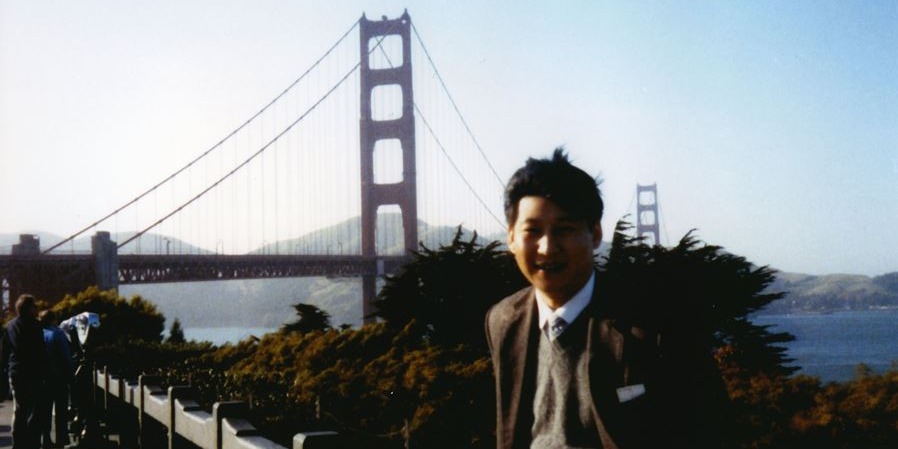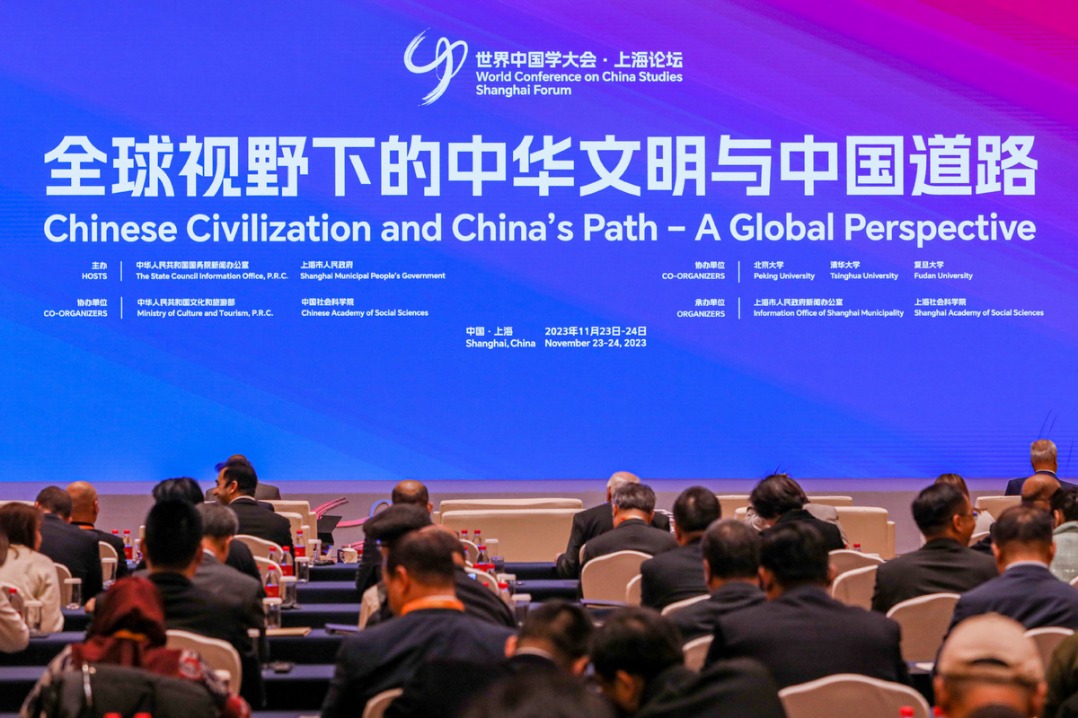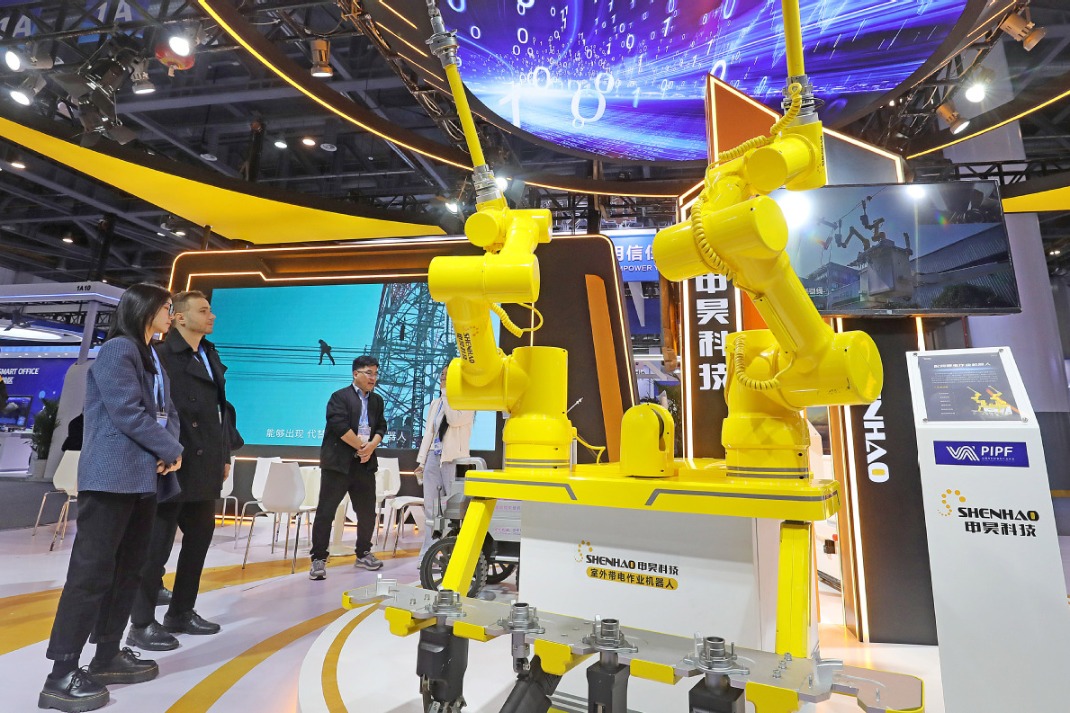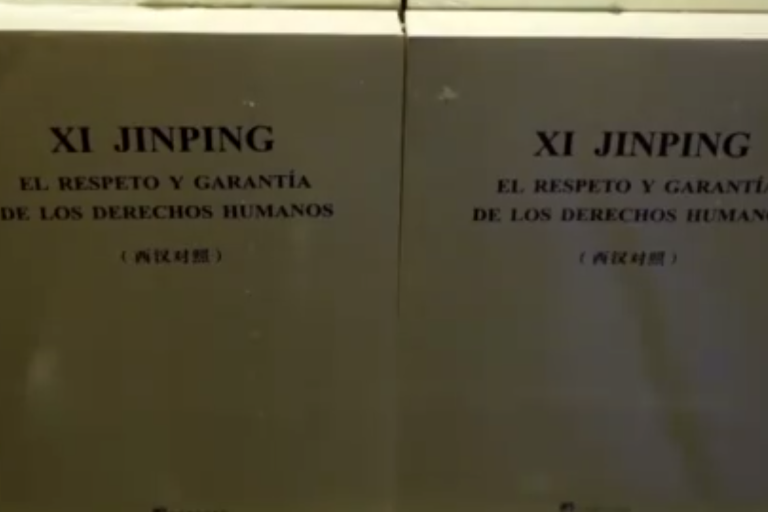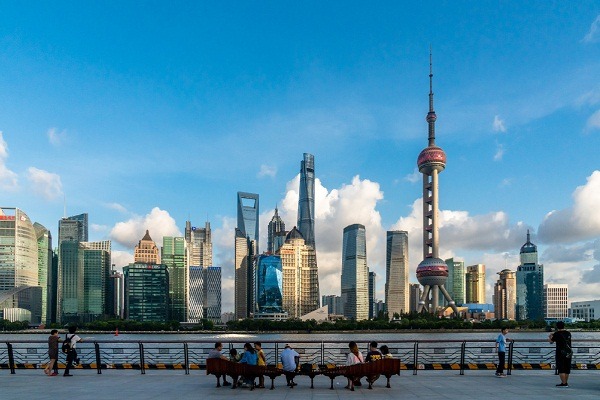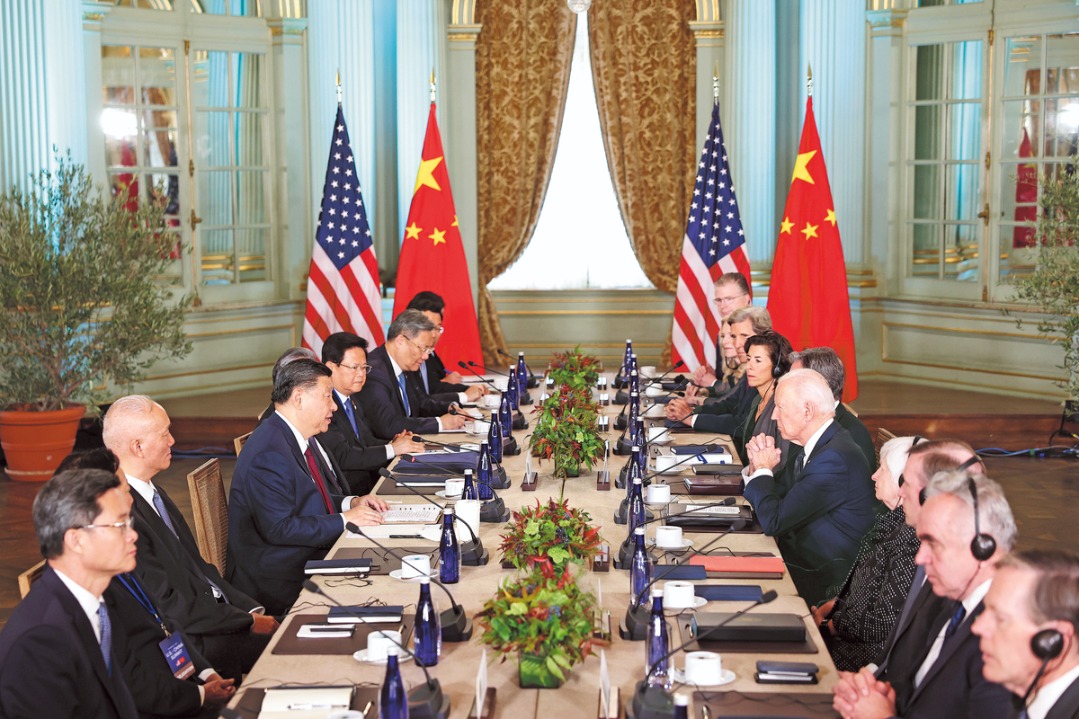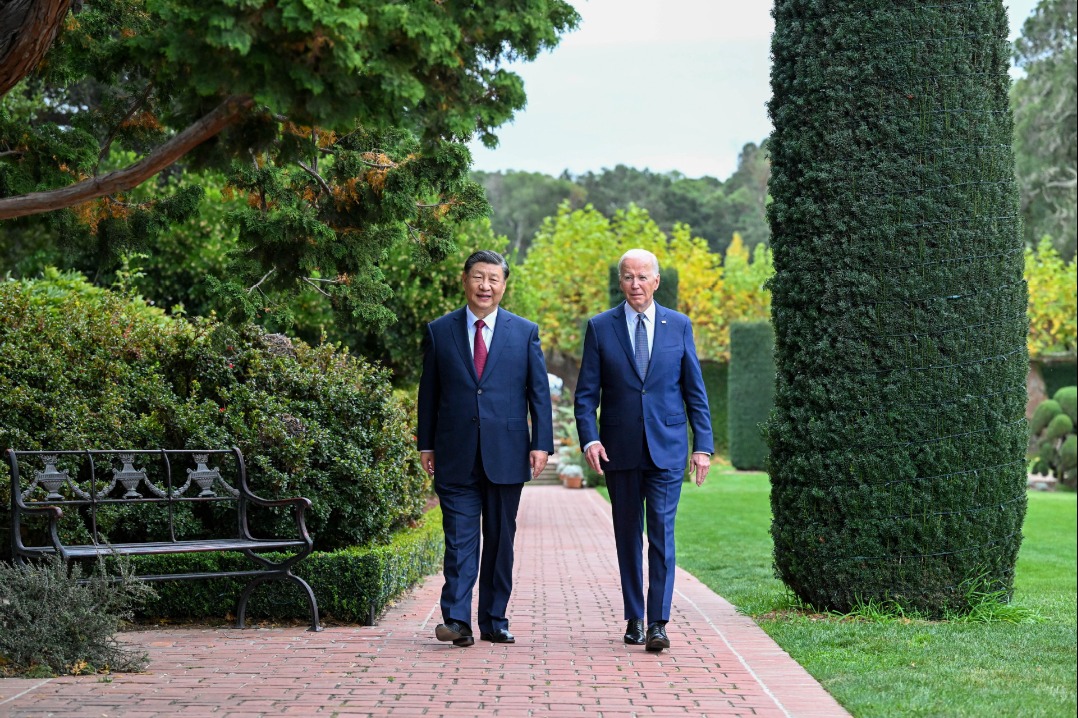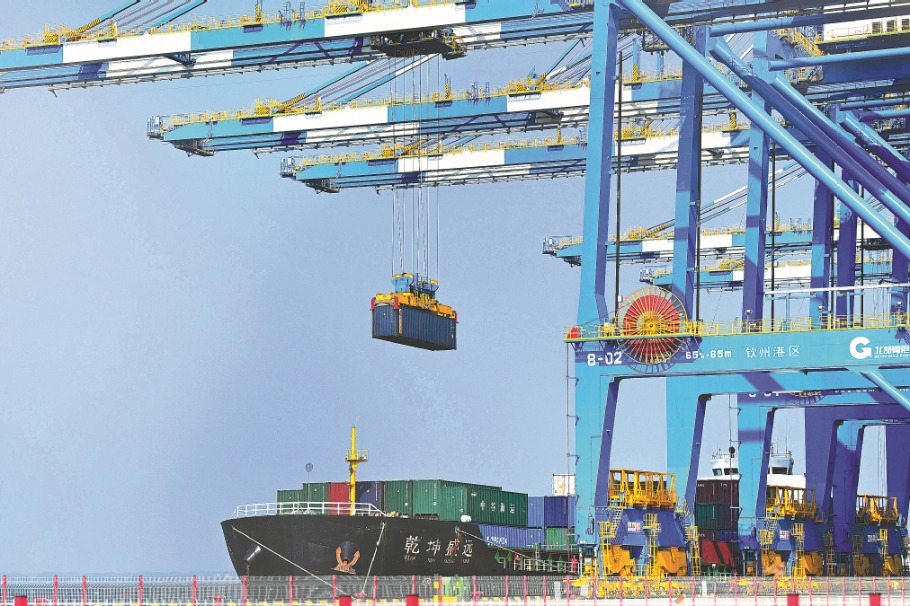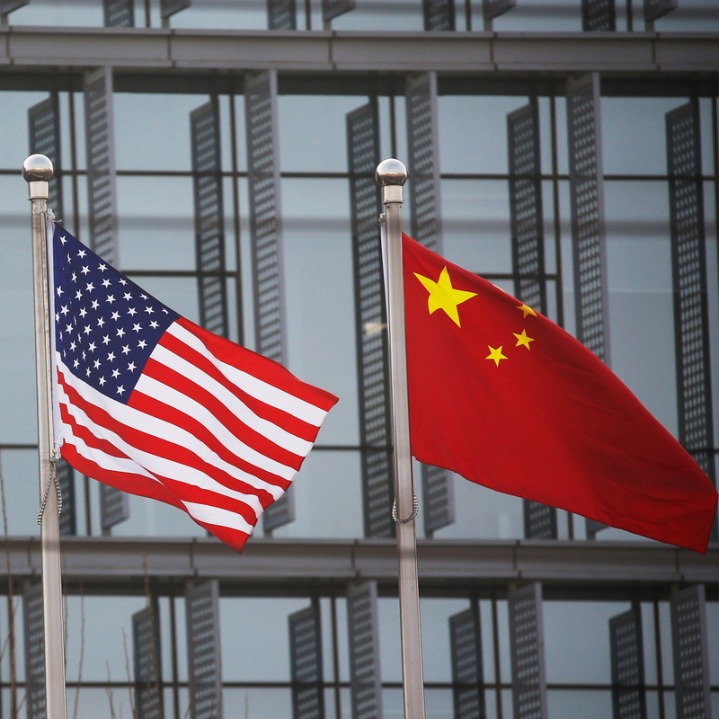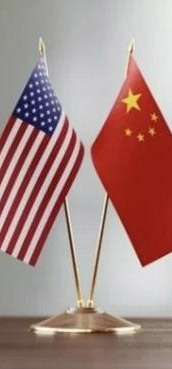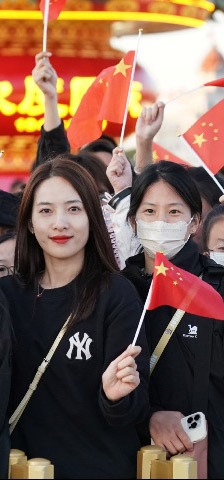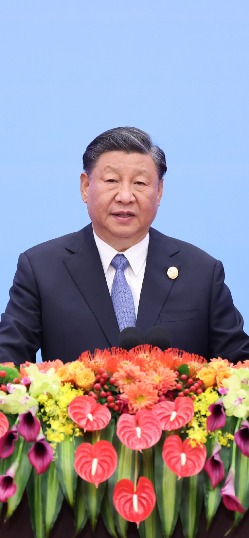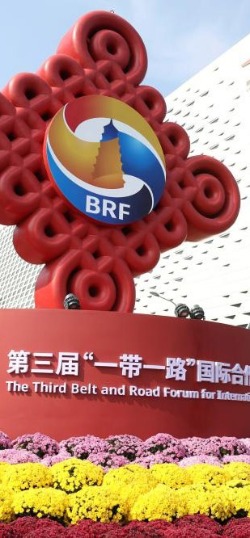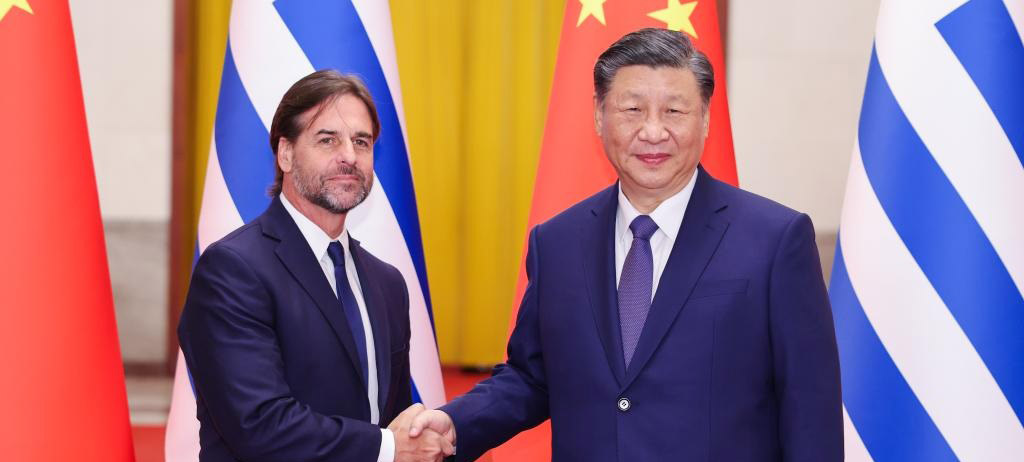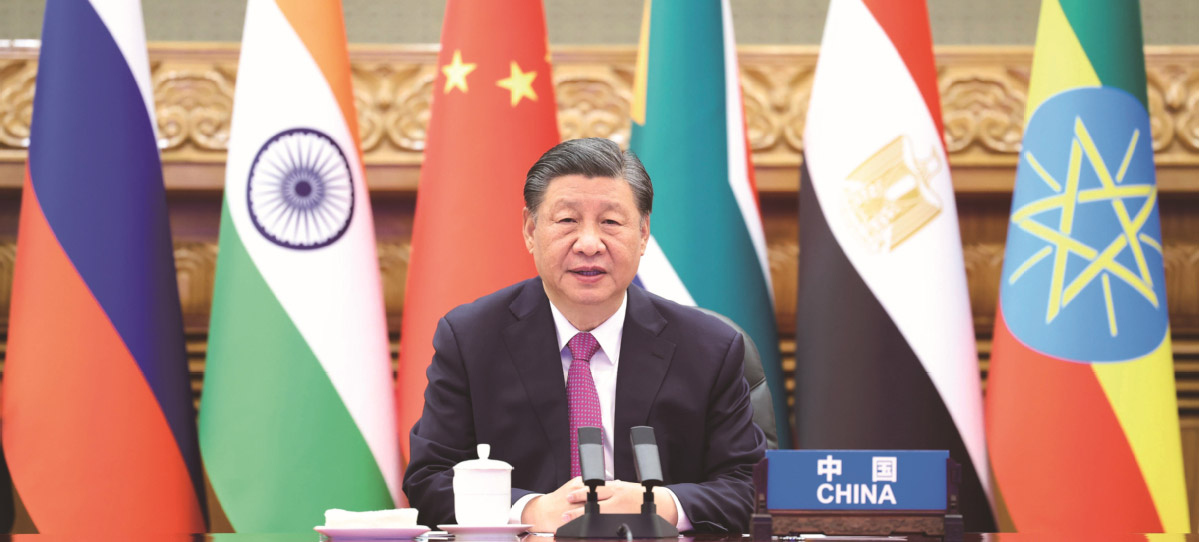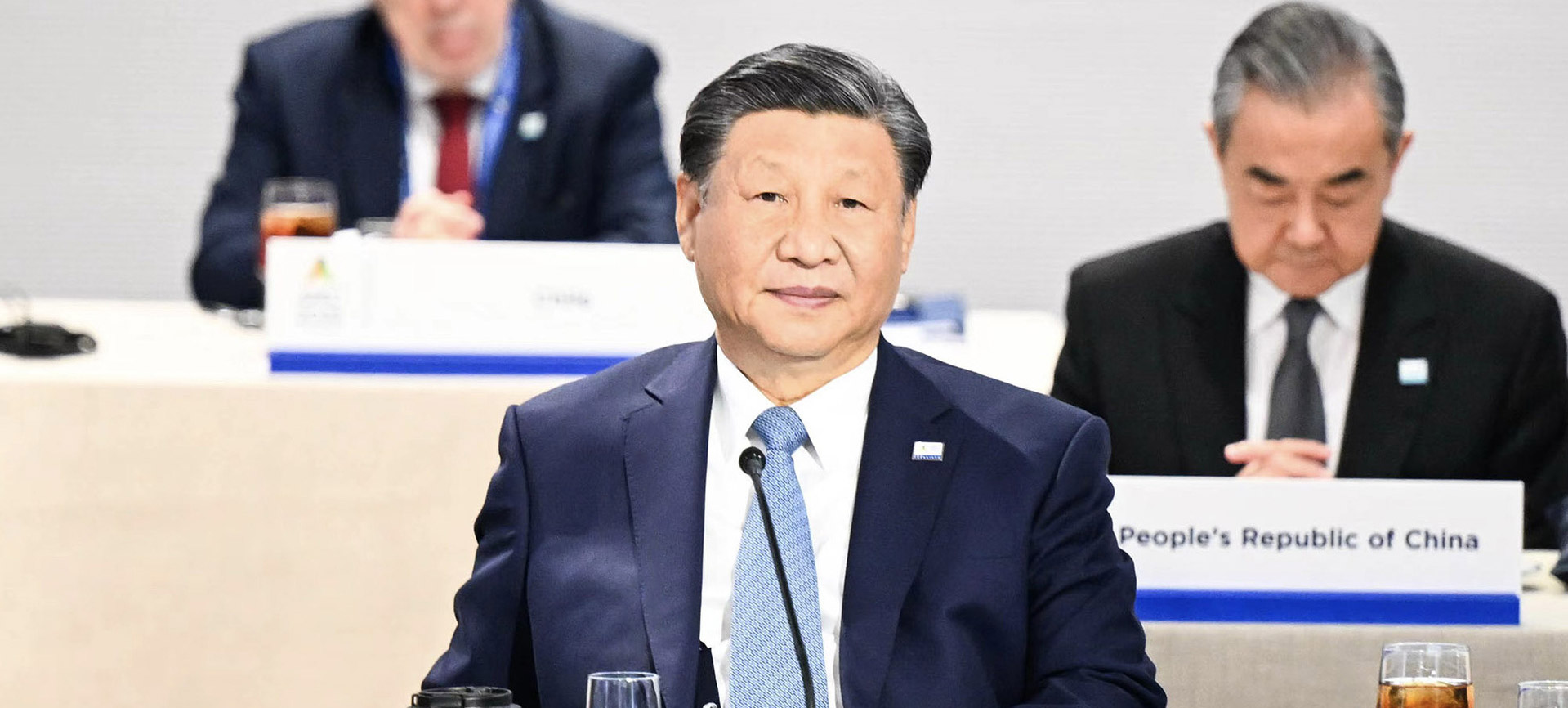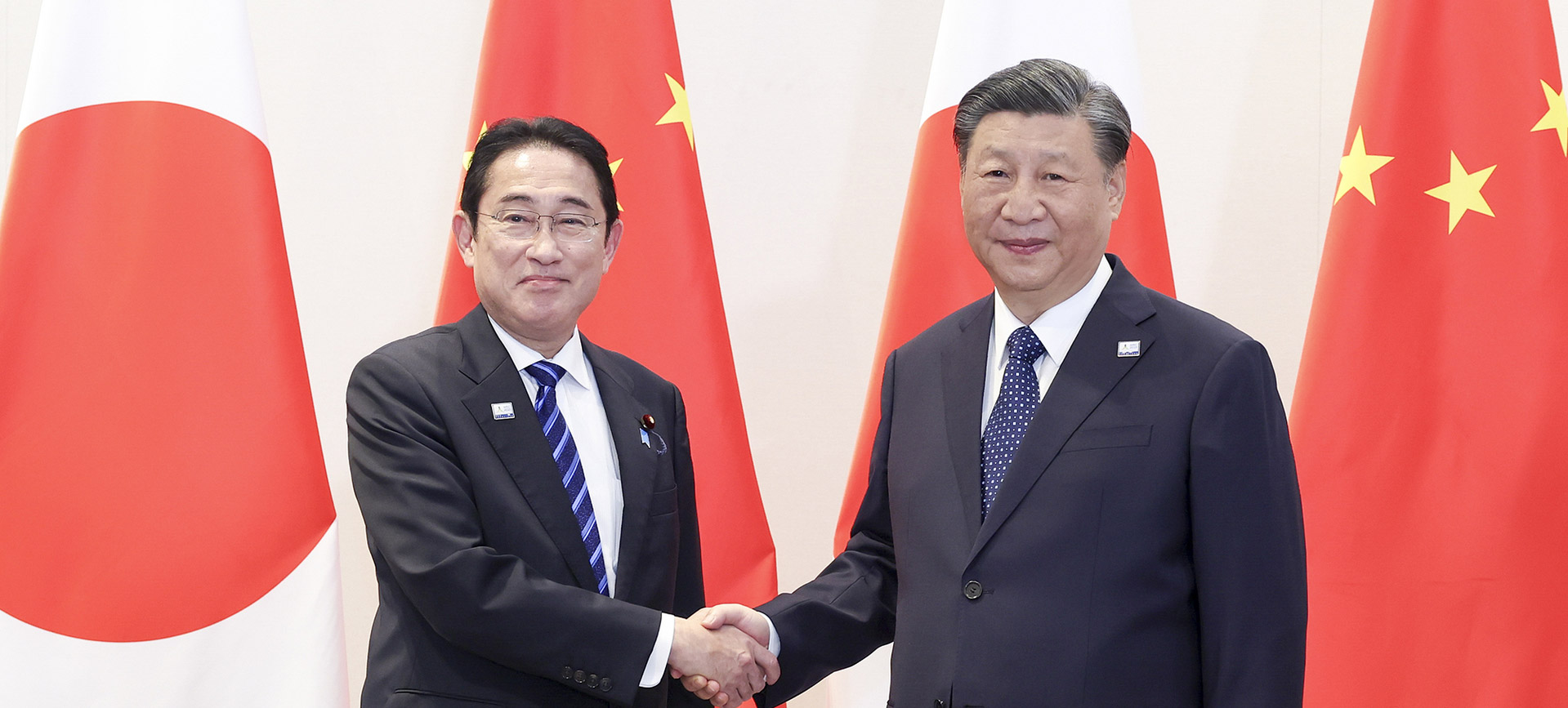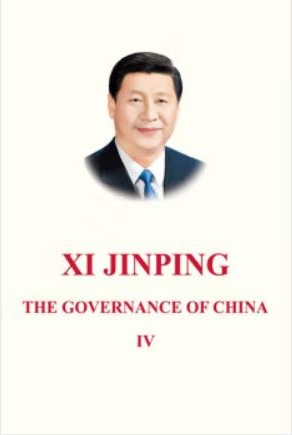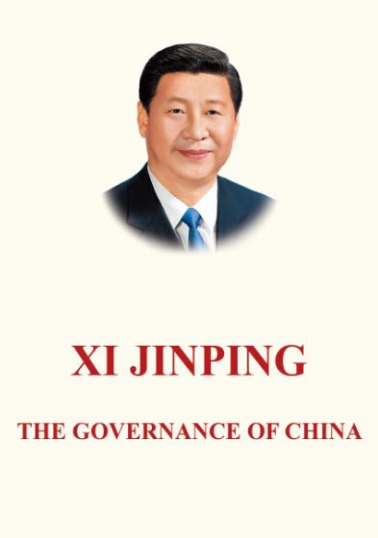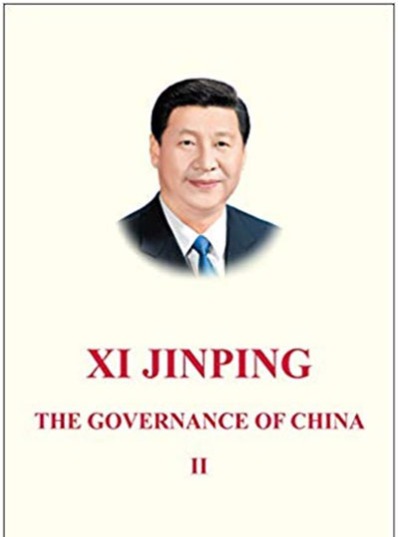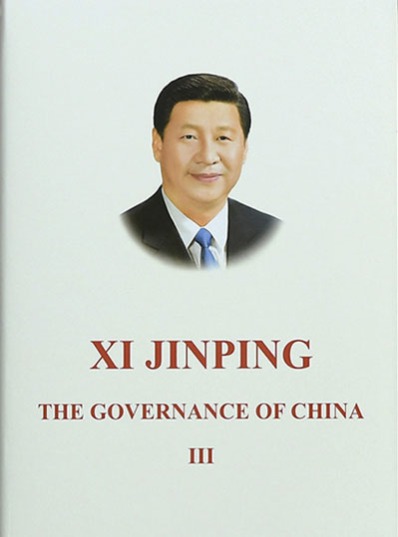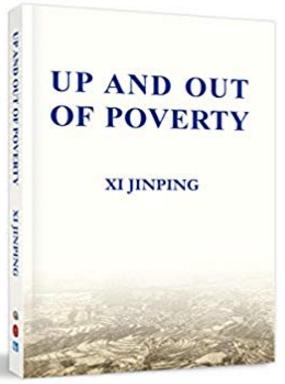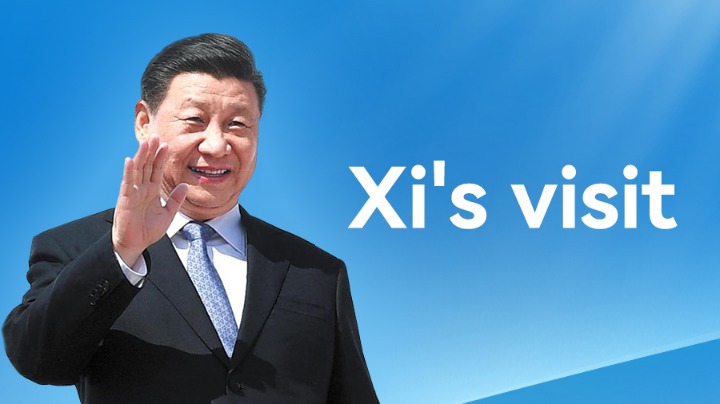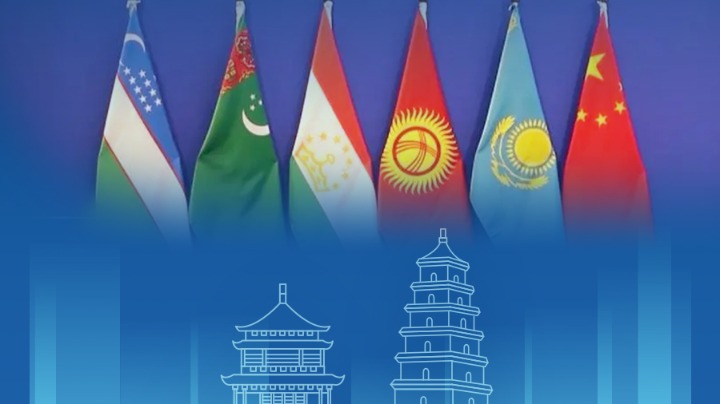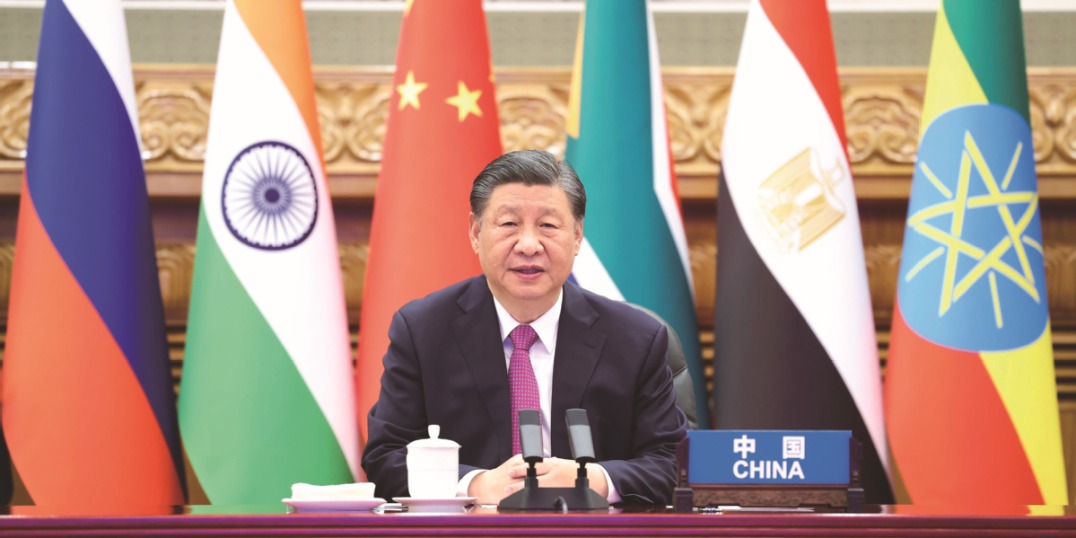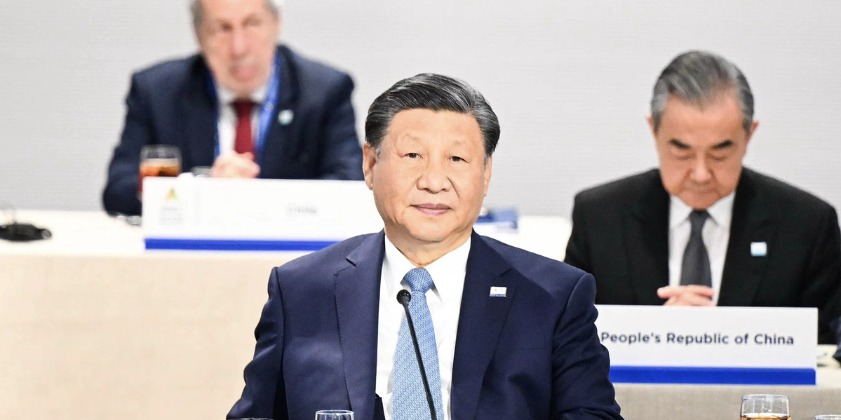

- Full text: Remarks by Chinese President Xi Jinping at the extraordinary joint meeting of BRICS leaders and leaders of invited BRICS members on the situation in the Middle East with particular reference to Gaza
- Full text of Xi's written speech at Asia-Pacific Economic Cooperation CEO Summit
- Galvanizing Our Peoples into a Strong Force For the Cause of China-U.S. Friendship
- Full text of Xi's speech at Welcome Dinner by Friendly Organizations in the United States
- Full text of Xi Jinping's keynote speech at 3rd Belt and Road Forum for Int'l Cooperation
- Remarks by Chinese President Xi Jinping at welcoming banquet of Hangzhou Asiad opening ceremony
- Full Text: Remarks by Chinese President Xi Jinping at China-Africa Leaders' Dialogue
- Enhancing Solidarity and Cooperation To Overcome Risks and Challenges And Jointly Build a Better World
- Full Text: Remarks by Chinese President Xi Jinping at the 15th BRICS Summit
- Xi's signed article published on S. African media
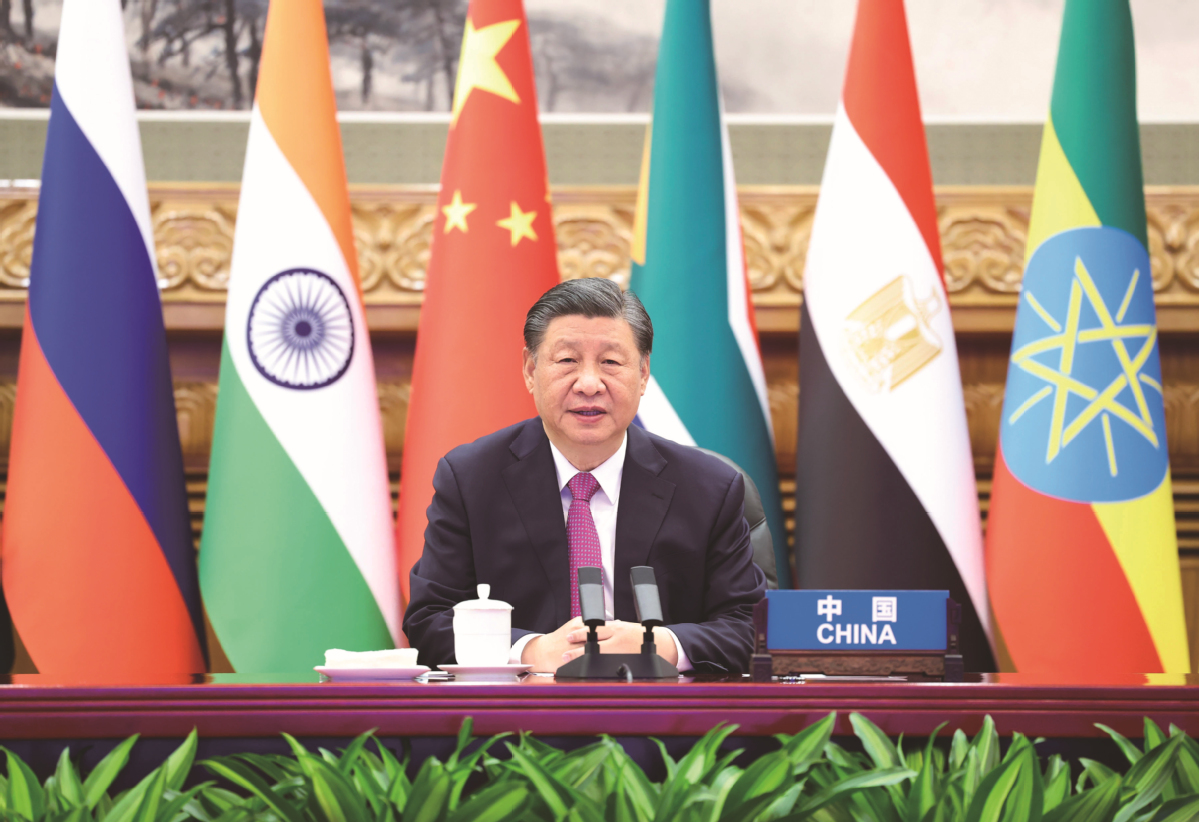
BEIJING -- Chinese President Xi Jinping on Tuesday addressed the extraordinary joint meeting of BRICS leaders and leaders of invited BRICS members on the situation in the Middle East with particular reference to Gaza.
The following is the full text of his remarks:
Working Toward a Ceasefire and
Realizing Lasting Peace and Sustainable Security
Remarks by H.E. Xi Jinping
President of the People's Republic of China
At the Extraordinary Joint Meeting of BRICS Leaders
And Leaders of Invited BRICS Members
On the Situation in the Middle East with Particular Reference to Gaza
November 21, 2023
Your Excellency President Cyril Ramaphosa,
Colleagues,
This is our first summit since the expansion of BRICS. Before I speak about the issue of our discussion, I wish to extend a warm welcome to leaders of new BRICS members and express my thanks to President Ramaphosa and the South African government for your efforts that have made our meeting possible. Given the current circumstances, it is very timely and very important that we meet and speak up for justice and for peace on the Palestinian-Israeli issue.
The conflict in Gaza is raging on into its second month. China is gravely concerned that the conflict is causing enormous civilian casualties and a humanitarian disaster, and tends to expand and spill over. China believes that the following is urgent and imperative: First, the parties to the conflict must end hostilities and achieve a ceasefire immediately, stop all violence and attacks against civilians, release civilians held captive, and act to prevent loss of more lives and spare people from more miseries. Second, humanitarian corridors must be kept secure and unimpeded, and more humanitarian assistance should be provided to the population in Gaza. The collective punishment of people in Gaza in the form of forced transfer or water, electricity and fuel deprivation must stop. Third, the international community must act with practical measures to prevent the conflict from spilling over and endangering stability in the Middle East as a whole. China supports the resolution adopted at the emergency special session of the UN General Assembly on October 27. The UN Security Council under China's presidency has adopted Resolution 2712. All the parties must act to deliver on these resolutions through concrete measures on the ground.
The root cause of the Palestinian-Israeli situation is the fact that the right of the Palestinian people to statehood, their right to existence, and their right of return have long been ignored. I have emphasized on many occasions that the only viable way to break the cycle of Palestinian-Israeli conflict lies in the two-state solution, in the restoration of the legitimate national rights of Palestine, and in the establishment of an independent State of Palestine. There can be no sustainable peace and security in the Middle East without a just solution to the question of Palestine. China calls for early convening of an international peace conference that is more authoritative to build international consensus for peace and work toward an early solution to the question of Palestine that is comprehensive, just and sustainable.
Since the outbreak of the latest Palestinian-Israeli conflict, China has been working actively to promote peace talks and a ceasefire. China has provided humanitarian assistance to help ease the humanitarian plight in Gaza. This includes $2 million of emergency humanitarian assistance provided through the Palestinian National Authority and UN agencies, and emergency humanitarian supplies worth RMB 15 million, such as food and medicine, to the Gaza Strip with the help of Egypt. China will provide more supplies and assistance according to the needs of the people in Gaza. At the UN Security Council, China has acted in its capacity as president to facilitate the adoption of the resolution, which calls for extended humanitarian pauses and corridors, the protection of civilians, and the provision of humanitarian assistance.
Colleagues,
The BRICS cooperation mechanism is an important platform for emerging markets and developing countries to strengthen solidarity and cooperation and safeguard common interests. Our meeting today to coordinate positions and actions on the Palestinian-Israeli conflict marks a good start for greater BRICS cooperation following its enlargement. China commends South Africa for its significant contribution as BRICS chair to advancing BRICS development. As Russia will take over BRICS chairmanship next year, China stands ready to work with other members to jointly support Russia's work as the chair and usher in a new era for BRICS cooperation.
Thank you.
Full text of Xi's written speech at Asia-Pacific Economic Cooperation CEO Summit
SAN FRANCISCO -- Chinese President Xi Jinping delivered a written speech here Thursday at the Asia-Pacific Economic Cooperation (APEC) CEO Summit.
The following is the full text of the speech:
Meeting Challenges with Unity of Purpose
To Write a New Chapter for Asia-Pacific Cooperation
Written Speech by H.E. Xi Jinping
President of the People's Republic of China
At the APEC CEO Summit
San Francisco, November 16, 2023
Representatives of the Business Community,
Ladies and Gentlemen,
Friends,
It gives me great pleasure to be invited to address the APEC CEO Summit. I visited San Francisco many years ago, and I was deeply impressed by the openness, inclusiveness and creativity which this beautiful city is famous for.
Three decades ago, where humanity should be headed in the post-Cold War era was the question of the world, of history and of the times in front of Asia-Pacific leaders. In response, they followed the trend toward peace and development, and convened the inaugural APEC Economic Leaders' Meeting. They agreed unanimously to rise above the outdated mentality of bloc confrontation and zero-sum game, deepen economic cooperation and integration in the region, and build a dynamic, harmonious and prosperous Asia-Pacific community. This major decision enabled Asia-Pacific development and economic globalization to embark on a fast track of growth, turning the region into a powerhouse for world economic growth, an anchor of stability for global development, and a pacesetter for international cooperation. There is so much we can draw from this remarkable journey of Asia-Pacific cooperation.
Openness and inclusiveness are the defining feature of Asia-Pacific cooperation. Development in our region has been achieved not through provoking antagonism and confrontation, pursuing a beggar-thy-neighbor policy, or erecting high fences around a small yard, but by staying open and inclusive and drawing on each other's strengths. We have stayed committed to open regionalism, jointly formulated the Bogor Goals and the Putrajaya Vision, promoted trade and investment liberalization and facilitation, and bolstered economic integration of the region. Over the past three decades, the Asia-Pacific has cut its average tariff rate from 17 percent to 5 percent, and contributed 70 percent of global economic growth.
Development for all is the overarching goal of Asia-Pacific cooperation. Development is an eternal pursuit in our region. We have stayed focused on development and continually deepened economic and technical cooperation, thus strengthening the ability of developing members to achieve self-development. We jointly developed "the APEC Approach" based on the principles of voluntarism, consensus-building and incremental progress, and we respect the right to development of all members. Over the past three decades, per capita income in the Asia-Pacific has more than quadrupled, and one billion people have been lifted out of poverty. This is an important contribution to human progress and global sustainable development.
Seeking common ground while shelving differences is the best practice of Asia-Pacific cooperation. Economies in the region have different histories and cultures and are in different stages of development.
Forcing uniformity will not advance cooperation in the region; seeking common ground while shelving differences is the right way forward. Over the past three decades, we have properly tackled major challenges such as the Asian and international financial crises, and have sustained the momentum of economic development in the Asia-Pacific. Our success was possible because we have followed the underlying trend, kept the larger picture in mind, and capitalized on the spirit of partnership featuring harmony without uniformity, and solidarity and mutual assistance. This has enabled us to turn diversity in membership into momentum for cooperation and make collective progress through tapping into complementarity.
Ladies and Gentlemen,
Friends,
The world has entered a new period of turbulence and change. The momentum of world economic growth is sluggish. Destabilizing, uncertain and unpredictable factors are increasing. Where will Asia-Pacific cooperation be headed in the next 30 years? This is a new question of the times facing us. As an ancient Chinese scholar observed, "plants with strong roots grow well, and efforts with the right focus ensure success." We should stay committed to APEC's founding mission, never forget our mission bestowed by history, and move to relaunch Asia-Pacific cooperation.
San Francisco, where the United Nations Charter was signed, embodies the noble aspiration of all peoples for peace across the world. Peace does not come by easily, and development is a long and arduous task. We should jointly uphold the purposes and principles of the UN Charter, and follow the right norms for state-to-state relations to maintain Asia-Pacific prosperity and stability through dialogue and partnership rather than confrontation and alliance. The region cannot and should not be an arena for geopolitical rivalry, still less should it be plunged into a new cold war or camp-based confrontation.
The story of Asia-Pacific prosperity and development shows that development is only possible with cooperation, absence of cooperation is the biggest risk, and that decoupling and supply-chain disruption are not in anyone's interests. We should remain committed to open regionalism, and steadfastly advance the building of a Free Trade Area of the Asia-Pacific. We should respect laws governing economic development, bring out the best in each and every one of us, make our economies more interconnected, strengthen synergy between relevant regional trade agreements and development strategies, and build an open Asia-Pacific economy featuring win-win cooperation.
Facing a new wave of scientific and technological revolution and industrial transformation, we should look beyond the horizon, seize the opportunities, and move along with the trend to promote transition to digital, smart and green development. We should jointly boost innovation and market application of scientific and technological advances, and push forward full integration of digital and physical economies. We should jointly improve global governance of science and technology, bolster support for green and digital transition and sustainable development through innovation, and build an open, fair, just and non-discriminatory environment for the development of science and technology.
Ten years ago, I called for building a community with a shared future for mankind. The APEC Putrajaya Vision explicitly lays out its vision for an Asia-Pacific community by 2040, charting the course for further cooperation in our region. In recent years, in response to the pressing needs around the world, I have proposed the Global Development Initiative (GDI), the Global Security Initiative (GSI) and the Global Civilization Initiative (GCI). They are intended to galvanize all stakeholders to address global challenges, promote common development, and improve the well-being of humanity. China will work with all in the Asia-Pacific to advance and implement these initiatives, and build an open, inclusive, clean and beautiful world of lasting peace, universal security and shared prosperity.
Ladies and Gentlemen,
Friends,
This year, China's economy has been steadily recovering and turning for the better. Its growth rate is among the highest among major economies of the world. And solid gains have been made in our pursuit of high-quality development. China remains the most powerful engine of global growth, and will generate one-third of global growth this year. Just as some leaders of the business community have said, China has become a synonym of the best investment destination, and that the "next China" is still China. We invite friends from business communities across the world to invest and deepen your footprint in China.
China enjoys distinct strengths such as a socialist market economy in systemic terms, a supersize market in terms of demand, a full-fledged industrial system in terms of supply, and abundant, high-caliber labor forces and entrepreneurs in terms of human resources. China's economic development is self-generative, resilient and has many potentials. In the past, China surmounted numerous difficulties and obstacles by defusing risks and meeting challenges, and made historic achievements. Today, the overall Chinese economy, blessed by its strong resilience, enormous potential and ample room for maneuver, remains promising, and it will remain so in the long run. We have the confidence in, and even more capability of achieving long-term and stable growth, and through our development we will continue to provide the world with new growth momentum and opportunities.
China is committed to applying the new development philosophy with a focus on achieving innovative, coordinated, green and open development for all, and it is pursuing high-quality development and high value-added and green economic growth. Recent years have seen rapid growth in China's export of "the new three," namely, new energy vehicles, lithium-ion batteries and photovoltaic products. A national voluntary greenhouse gas emissions reduction trading market will soon be launched, which will create huge green market opportunities. China will expedite its efforts to modernize the industrial system, provide better institutional safeguards to enable business entities of all types to share in the gains of development, and foster new drivers of growth and create more room for development.
We remain committed to pursuing development with our doors open. We will unswervingly advance high-standard opening up and further expand market access. China has announced the removal of all restrictive measures on foreign investment in manufacturing. The sixth China International Import Expo was held recently, and the second Global Digital Trade Expo will be held later this month. All these steps will expand China's opening up and create more development opportunities and benefits for other countries. China is applying high standards to its implementation of the Regional Comprehensive Economic Partnership Agreement. It is working to align itself with the high-standard economic and trade rules of the Comprehensive and Progressive Agreement for Trans-Pacific Partnership and the Digital Economy Partnership Agreement to advance the process of acceding to these two agreements, and expand a globally-oriented network of high-standard free trade areas. This year marks the 10th anniversary of the Belt and Road Initiative that I proposed. Last month, China hosted the third Belt and Road Forum for International Cooperation with 458 deliverables. Chinese financial institutions established a financing window of RMB 780 billion for Belt and Road projects, and Chinese and foreign companies reached business deals worth USD 97.2 billion. All this will contribute to high-quality Belt and Road cooperation, and provide strong momentum for connectivity, development and prosperity around the world.
No matter how the international situation evolves, China's resolve to foster a market-oriented, law-based and world-class business environment will not change. And our policy of providing equal and quality services to foreign investors will not change. We will continue to improve the mechanisms for protecting the rights and interests of foreign investors, further shorten the negative list on foreign investment, fully ensure national treatment for foreign investors, and continue to strengthen IPR protection. We will strive to tear down the barriers to the flow of innovation factors, deepen reform of the digital economy, and promote free and orderly flow of data in compliance with the law. We will also take more "heart-warming" measures, such as improving the policies on entry and stay of foreign nationals in China and removing for them choke points in financial, medical, e-payment and other services. All this is designed to make it easier for foreign companies to invest and operate in China.
I wish to stress that Chinese modernization naturally calls for high-quality development by overcoming economic challenges and making steady progress. Its immutable goal is to deliver a better life to the whole of more than 1.4 billion Chinese people. For the world, this means a broader market and unprecedented cooperation opportunities. It will also instill strong impetus in the global modernization endeavor.
Ladies and Gentlemen,
Friends,
The Asia-Pacific business community has always been courageous pioneers in Asia-Pacific cooperation and global development. I hope that you will make full use of your entrepreneurship, and contribute even more to building an open Asia-Pacific economy and boosting global economic development. I also hope to see an active part of the global business community in the Chinese modernization drive to benefit from the huge opportunities brought by China's high-quality development!
Thank you.
Galvanizing Our Peoples into a Strong Force For the Cause of China-U.S. Friendship

Speech by H.E. Xi Jinping President of the People's Republic of China At Welcome Dinner by Friendly Organizations in the United States San Francisco, November 15, 2023
Ladies and Gentlemen,
Friends,
It gives me great pleasure to meet with you, friends from across the American society, in San Francisco to renew our friendship and strengthen our bond. My first visit to the United States in 1985 started from San Francisco, which formed my first impression of this country. Today I still keep a photo of me in front of the Golden Gate Bridge.
Before going further, I wish to express my sincere thanks to the National Committee on U.S.-China Relations, the U.S.-China Business Council, the Asia Society, the Council on Foreign Relations, the U.S. Chamber of Commerce and other friendly organizations for hosting this event. I also want to express my warm greetings to all American friends who have long committed to growing China-U.S. relations and my best wishes to the friendly American people.
San Francisco has borne witness to exchanges between the Chinese and American peoples for over a century. A hundred and fifty-eight years ago, a large number of Chinese workers came all the way to the United States to build the first transcontinental railroad, and established in San Francisco the oldest Chinatown in the Western Hemisphere. From here, China and the United States have made many achievements — USD 760 billion of annual bilateral trade and over USD 260 billion of two-way investment, 284 pairs of sister provinces/states and sister cities, and over 300 scheduled flights every week and over five million travels every year at peak time. These extraordinary accomplishments were made jointly by our peoples accounting for nearly one quarter of the global population.
San Francisco has also borne witness to the efforts by China and the United States in building a better world. Seventy-eight years ago, after jointly defeating fascism and militarism, our two countries initiated together with others the San Francisco Conference, which helped found the United Nations, and China was the first country to sign the U.N. Charter. Starting from San Francisco, the postwar international order was established. Over 100 countries have gained independence one after another. Several billion people have eventually shaken off poverty. The forces for world peace, development and progress have grown stronger. This has been the main fruit jointly achieved by people of all countries and the international community.
Ladies and Gentlemen,
Friends,
The foundation of China-U.S. relations was laid by our peoples. During World War II, our two countries fought side by side for peace and justice. Headed by General Claire Lee Chennault, a group of American volunteers, known as the Flying Tigers, went to the battlefield in China. They not only engaged in direct combats fighting Japanese aggressors, but also created "The Hump" airlift to transport much-needed supplies to China. More than 1,000 Chinese and American airmen lost their lives on this air route. After Japan attacked Pearl Harbor, the United States sent 16 B-25 bombers on an air raid to Japan in 1942. Running low on fuel after completing their mission, Lieutenant Colonel James Doolittle and his fellow pilots parachuted in China. They were rescued by Chinese troops and local civilians. But some 250,000 civilian Chinese were killed by Japanese aggressors in retaliation.
The Chinese people never forget the Flying Tigers. We built a Flying Tigers museum in Chongqing, and invited over 1,000 Flying Tigers veterans and their families to visit China. I have kept in touch with some of them through letters. Most recently, 103-year-old Harry Moyer and 98-year-old Mel McMullen, both Flying Tigers veterans, went back to China. They visited the Great Wall, and were warmly received by the Chinese people.
The American people, on their part, always remember the Chinese who risked their lives to save American pilots. Offspring of those American pilots often visit the Doolittle Raid Memorial Hall in Quzhou of Zhejiang Province to pay tribute to the Chinese people for their heroic and valorous efforts. These stories fill me with firm confidence that the friendship between our two peoples, which has stood the test of blood and fire, will be passed on from generation to generation.
The door of China-U.S. relations was opened by our peoples. For 22 years, there were estrangement and antagonism between our two countries. But the trend of the times brought us together, converging interests enabled us to rise above differences, and the people's longing broke the ice between the two countries. In 1971, the U.S. table tennis team visited Beijing — a small ball moved the globe. Not long after that, Mr. Mike Mansfield led the first U.S. Congressional delegation to China. This was followed by the first governors' delegation including Iowa Governor Robert Ray and then many business delegations, forming waves of friendly exchanges.
This year, after the world emerged from the COVID-19 pandemic, I have respectively met in Beijing with Dr. Henry Kissinger, Mr. Bill Gates, Senator Chuck Schumer and his Senate colleagues, and Governor Gavin Newsom. I told them that the hope of the China-U.S. relationship lies in the people, its foundation is in our societies, its future depends on the youth, and its vitality comes from exchanges at subnational levels. I welcome more U.S. governors, Congressional members, and people from all walks of life to visit China.
The stories of China-U.S. relations are written by our peoples. During my first visit to the United States, I stayed at the Dvorchaks in Iowa. I still remember their address — 2911 Bonnie Drive. That was my first face-to-face contact with the Americans. The days I spent with them are unforgettable. For me, they represent America. I have found that although our two countries are different in history, culture and social system and have embarked on different development paths, our two peoples are both kind, friendly, hardworking and down-to-earth. We both love our countries, our families and our lives, and we both are friendly toward each other and are interested in each other. It is the convergence of many streams of goodwill and friendship that has created a strong current surging across the vast Pacific Ocean; it is the reaching out to each other by our peoples that has time and again brought China-U.S. relations from a low ebb back onto the right track. I am convinced that once opened, the door of China-U.S. relations cannot be shut again. Once started, the cause of China-U.S. friendship cannot be derailed halfway. The tree of our peoples' friendship has grown tall and strong; and it can surely withstand the assault of any wind or storm.
The future of China-U.S. relations will be created by our peoples. The more difficulties there are, the greater the need for us to forge a closer bond between our peoples and to open our hearts to each other, and more people need to speak up for the relationship. We should build more bridges and pave more roads for people-to-people interactions. We must not erect barriers or create a chilling effect.
Today, President Biden and I reached important consensus. Our two countries will roll out more measures to facilitate travels and promote people-to-people exchanges, including increasing direct passenger flights, holding a high-level dialogue on tourism, and streamlining visa application procedures. We hope that our two peoples will make more visits, contacts and exchanges and write new stories of friendship in the new era. I also hope that California and San Francisco will continue to take the lead on the journey of growing China-U.S. friendship!
Ladies and Gentlemen,
Friends,
We are in an era of challenges and changes. It is also an era of hope. The world needs China and the United States to work together for a better future. We, the largest developing country and the largest developed country, must handle our relations well. In a world of changes and chaos, it is ever more important for us to have the mind, assume the vision, shoulder the responsibility, and play the role that come along with our status as major countries.
I have always had one question on my mind: How to steer the giant ship of China-U.S. relations clear of hidden rocks and shoals, navigate it through storms and waves without getting disoriented, losing speed or even having a collision?
In this respect, the number one question for us is: are we adversaries, or partners? This is the fundamental and overarching issue. The logic is quite simple. If one sees the other side as a primary competitor, the most consequential geopolitical challenge and a pacing threat, it will only lead to misinformed policy making, misguided actions, and unwanted results. China is ready to be a partner and friend of the United States. The fundamental principles that we follow in handling China-U.S. relations are mutual respect, peaceful coexistence and win-win cooperation.
Just as mutual respect is a basic code of behavior for individuals, it is fundamental for China-U.S. relations. The United States is unique in its history, culture and geographical position, which have shaped its distinct development path and social system. We fully respect all this. The path of socialism with Chinese characteristics has been found under the guidance of the theory of scientific socialism, and is rooted in the tradition of the Chinese civilization with an uninterrupted history of more than 5,000 years. We are proud of our choice, just as you are proud of yours. Our paths are different, but both are the choice by our peoples, and both lead to the realization of the common values of humanity. They should be both respected.
Peaceful coexistence is a basic norm for international relations, and is even more of a baseline that China and the United States should hold on to as two major countries. It is wrong to view China, which is committed to peaceful development, as a threat and thus play a zero-sum game against it. China never bets against the United States, and never interferes in its internal affairs. China has no intention to challenge the United States or to unseat it. Instead, we will be glad to see a confident, open, ever-growing and prosperous United States. Likewise, the United States should not bet against China, or interfere in China's internal affairs. It should instead welcome a peaceful, stable and prosperous China.
Win-win cooperation is the trend of the times, and it is also an inherent property of China-U.S. relations. China is pursuing high-quality development, and the United States is revitalizing its economy. There is plenty of room for our cooperation, and we are fully able to help each other succeed and achieve win-win outcomes.
The Belt and Road Initiative as well as the Global Development Initiative (GDI), the Global Security Initiative (GSI) and the Global Civilization Initiative (GCI) proposed by China are open to all countries at all times including the United States. China is also ready to participate in U.S.-proposed multilateral cooperation initiatives. This morning, President Biden and I agreed to promote dialogue and cooperation, in the spirit of mutual respect, in areas including diplomacy, economy and trade, people-to-people exchange, education, science and technology, agriculture, military, law enforcement, and artificial intelligence. We agreed to make the cooperation list longer and the pie of cooperation bigger. I would like to let you know that China sympathizes deeply with the American people, especially the young, for the sufferings that Fentanyl has inflicted upon them. President Biden and I have agreed to set up a working group on counternarcotics to further our cooperation and help the United States tackle drug abuse. I also wish to announce here that to increase exchanges between our peoples, especially between the youth, China is ready to invite 50,000 young Americans to China on exchange and study programs in the next five years.
Recently, the three pandas at Smithsonian's National Zoo in Washington D.C. have returned to China. I was told that many American people, especially children, were really reluctant to say goodbye to the pandas, and went to the zoo to see them off. I also learned that the San Diego Zoo and the Californians very much look forward to welcoming pandas back. Pandas have long been envoys of friendship between the Chinese and American peoples. We are ready to continue our cooperation with the United States on panda conservation, and do our best to meet the wishes of the Californians so as to deepen the friendly ties between our two peoples.
Ladies and Gentlemen,
Friends,
China is the largest developing country in the world. The Chinese people long for better jobs, better lives, and better education for their children. It is what the 1.4 billion Chinese hold dear to their hearts. The Communist Party of China (CPC) is committed to working for the people, and our people's expectation for a better life is our goal. This means we must work hard to secure their support. Thanks to a century of exploration and struggle, we have found the development path that suits us. We are now advancing the rejuvenation of the Chinese nation on all fronts by pursuing Chinese modernization.
We are committed to striving in unity to achieve modernization for all Chinese. A large population is a fundamental aspect of China's reality. Our achievements, however great, would be very small when divided by 1.4 billion. But a problem, however small, would be huge when multiplied by 1.4 billion. This is a unique challenge for a country of our size. In the meantime, big also means strength. The leadership of the CPC, the system of socialism with Chinese characteristics, and the endorsement and support of the people are our greatest strengths. China is both a super-large economy and a super-large market. Not long ago the sixth China International Import Expo was held, attracting over 3,400 business exhibitors from 128 countries including the United States. The exhibition area of American companies has been the largest for six consecutive years at the Expo. Modernization for 1.4 billion Chinese is a huge opportunity that China provides to the world.
We are committed to prosperity for all to deliver a better life for each and every Chinese. To eliminate poverty is the millennia-old dream of the Chinese nation, and prosperity for all is the longing of all Chinese. Before I turned 16, I was in a village in northern Shaanxi Province, where I lived and farmed with villagers, and I knew about their worries and needs. Now half a century on, I always feel confident and strong when staying with the people. Serving the people selflessly and living up to their expectations is my lifelong commitment. When I became General Secretary of the CPC Central Committee and President of the People's Republic of China, 100 million people were still living below the poverty line set by the United Nations. Thanks to eight years of tenacious efforts, we lifted them all out of poverty. We realized the poverty reduction goal of the U.N. 2030 Agenda for Sustainable Development 10 years ahead of schedule. In the process, over 1,800 CPC members lost their lives in the line of duty.
Our goal is not to have just a few wealthy people, but to realize common prosperity for all. Employment, education, medical services, child care, elderly care, housing, the environment and the like are real issues important to people's daily life and close to their heart. They are being steadily integrated into our top-level plans for national development, thus ever increasing the sense of fulfillment, happiness and security of our people. We will continue to promote high-quality development and deliver the benefits of modernization to all. This is the CPC's founding mission and the pledge we have made to the people. It will surely be realized with the support of the people.
We are committed to well-rounded development to achieve both material and cultural-ethical advancement for the people. Our forefathers observed that "When people are well-fed and well-clad, they will have a keen sense of honor and shame." Material shortage is not socialism, nor is cultural-ethical impoverishment. Chinese modernization is people-centered. An important goal of Chinese modernization is to continue increasing the country's economic strength and improving the people's living standards, and at the same time, enriching the people's cultural lives, enhancing civility throughout society and promoting well-rounded development of the person. The purpose of the Global Civilization Initiative I proposed is to urge the international community to address the imbalance between material and cultural advancement and jointly promote continued progress of human civilization.
We are committed to sustainable development to achieve harmony between man and nature. The belief that humans are an integral part of nature and need to follow nature's course is a distinctive feature of traditional Chinese culture. We live in the same global village, and we possibly won't find another inhabitable planet in our lifetime. As an English saying goes, "We do not inherit the Earth from our ancestors, we borrow it from our children." When I was Governor of Fujian Province in 2002, I called for turning Fujian into the first ecological province in China. Later when I worked in Zhejiang Province in 2005, I said that clear waters and green mountains are just as valuable as gold and silver. Today, this view has become a consensus of all the Chinese people. China now has close to half of the world's installed photovoltaic capacity. Over half of the world's new energy vehicles run on roads in China, and China contributes one-fourth of increased area of afforestation in the world. We will strive to peak carbon dioxide emissions before 2030 and achieve carbon neutrality before 2060. We have made the pledge, and we will honor it.
We are committed to peaceful development to build a community with a shared future for mankind. Peace, amity and harmony are values embedded in Chinese civilization. Aggression and expansion are not in our genes. The Chinese people have bitter and deep memories of the turmoils and sufferings inflicted upon them in modern times. I often say that what the Chinese people oppose is war, what they want is stability, and what they hope for is enduring world peace. The great rejuvenation of the Chinese nation cannot be achieved without a peaceful and stable international environment. In pursuing modernization, we will never revert to the beaten path of war, colonization, plundering or coercion.
Throughout the 70 years and more since the founding of the People's Republic, China has not provoked a conflict or war, or occupied a single inch of foreign land. China is the only major country that has written peaceful development into the Constitution of the country and the Constitution of the governing party, thus making peaceful development a commitment of the nation. It benefits from and safeguards the current international order. We remain firm in safeguarding the international system with the U.N. at its core, the international order underpinned by international law, and the basic norms governing international relations based on the purposes and principles of the U.N. Charter. Whatever stage of development it may reach, China will never pursue hegemony or expansion, and will never impose its will on others. China does not seek spheres of influence, and will not fight a cold war or a hot war with anyone. China will remain committed to dialogue and oppose confrontation, and build partnerships instead of alliances. It will continue to pursue a mutually beneficial strategy of opening up. The modernization we are pursuing is not for China alone. We are ready to work with all countries to advance global modernization featuring peaceful development, mutually beneficial cooperation and common prosperity, and to build a community with a shared future for mankind.
Ladies and Gentlemen,
Friends,
The passage of time is like a surging river — much is washed away, but the most valuable stays. No matter how the global landscape evolves, the historical trend of peaceful coexistence between China and the United States will not change. The ultimate wish of our two peoples for exchanges and cooperation will not change. The expectations of the whole world for a steadily growing China-U.S. relationship will not change. For any great cause to succeed, it must take root in the people, gain strength from the people, and be accomplished by the people. Growing China-U.S. friendship is such a great cause. Let us galvanize the Chinese and American peoples into a strong force to renew China-U.S. friendship, advance China-U.S. relations, and make even greater contributions to world peace and development!
SOURCE: MINISTRY OF FOREIGN AFFAIRS
Full text of Xi's speech at Welcome Dinner by Friendly Organizations in the United States
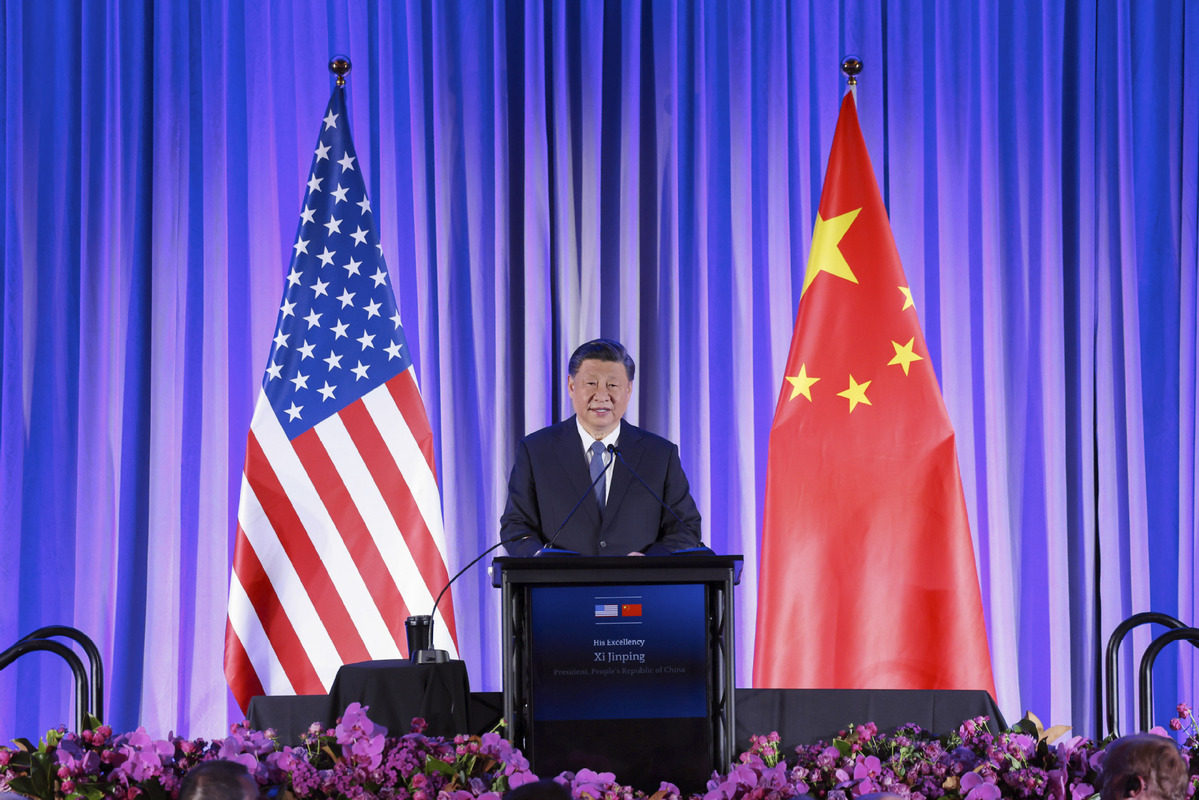
SAN FRANCISCO -- Chinese President Xi Jinping delivered a speech here Wednesday at Welcome Dinner by Friendly Organizations in the United States.
The following is the full text of the speech:
Galvanizing Our Peoples into a Strong Force
For the Cause of China-US Friendship
Speech by H.E. Xi Jinping
President of the People's Republic of China
At Welcome Dinner by Friendly Organizations in the United States
San Francisco, November 15, 2023
Ladies and Gentlemen,
Friends,
It gives me great pleasure to meet with you, friends from across the American society, in San Francisco to renew our friendship and strengthen our bond. My first visit to the United States in 1985 started from San Francisco, which formed my first impression of this country. Today I still keep a photo of me in front of the Golden Gate Bridge.
Before going further, I wish to express my sincere thanks to the National Committee on US-China Relations, the US-China Business Council, the Asia Society, the Council on Foreign Relations, the US Chamber of Commerce and other friendly organizations for hosting this event. I also want to express my warm greetings to all American friends who have long committed to growing China-US relations and my best wishes to the friendly American people.
San Francisco has borne witness to exchanges between the Chinese and American peoples for over a century. A hundred and fifty-eight years ago, a large number of Chinese workers came all the way to the United States to build the first transcontinental railroad, and established in San Francisco the oldest Chinatown in the Western Hemisphere. From here, China and the United States have made many achievements--$760 billion of annual bilateral trade and over $260 billion of two-way investment, 284 pairs of sister provinces/states and sister cities, and over 300 scheduled flights every week and over five million travels every year at peak time. These extraordinary accomplishments were made jointly by our peoples accounting for nearly one quarter of the global population.
San Francisco has also borne witness to the efforts by China and the United States in building a better world. Seventy-eight years ago, after jointly defeating fascism and militarism, our two countries initiated together with others the San Francisco Conference, which helped found the United Nations, and China was the first country to sign the UN Charter. Starting from San Francisco, the postwar international order was established. Over 100 countries have gained independence one after another. Several billion people have eventually shaken off poverty. The forces for world peace, development and progress have grown stronger. This has been the main fruit jointly achieved by people of all countries and the international community.
Ladies and Gentlemen,
Friends,
The foundation of China-US relations was laid by our peoples. During World War II, our two countries fought side by side for peace and justice. Headed by General Claire Lee Chennault, a group of American volunteers, known as the Flying Tigers, went to the battlefield in China. They not only engaged in direct combats fighting Japanese aggressors, but also created "The Hump" airlift to transport much-needed supplies to China. More than 1,000 Chinese and American airmen lost their lives on this air route. After Japan attacked Pearl Harbor, the United States sent 16 B-25 bombers on an air raid to Japan in 1942. Running low on fuel after completing their mission, Lieutenant Colonel James Doolittle and his fellow pilots parachuted in China. They were rescued by Chinese troops and local civilians. But some 250,000 civilian Chinese were killed by Japanese aggressors in retaliation.
The Chinese people never forget the Flying Tigers. We built a Flying Tigers museum in Chongqing, and invited over 1,000 Flying Tigers veterans and their families to visit China. I have kept in touch with some of them through letters. Most recently, 103-year-old Harry Moyer and 98-year-old Mel McMullen, both Flying Tigers veterans, went back to China. They visited the Great Wall, and were warmly received by the Chinese people.
The American people, on their part, always remember the Chinese who risked their lives to save American pilots. Offspring of those American pilots often visit the Doolittle Raid Memorial Hall in Quzhou of Zhejiang province to pay tribute to the Chinese people for their heroic and valorous efforts. These stories fill me with firm confidence that the friendship between our two peoples, which has stood the test of blood and fire, will be passed on from generation to generation.
The door of China-US relations was opened by our peoples. For 22 years, there were estrangement and antagonism between our two countries. But the trend of the times brought us together, converging interests enabled us to rise above differences, and the people's longing broke the ice between the two countries. In 1971, the US table tennis team visited Beijing--a small ball moved the globe. Not long after that, Mr Mike Mansfield led the first US Congressional delegation to China. This was followed by the first governors' delegation including Iowa Governor Robert Ray and then many business delegations, forming waves of friendly exchanges.
This year, after the world emerged from the COVID-19 pandemic, I have respectively met in Beijing with Dr. Henry Kissinger, Mr Bill Gates, Senator Chuck Schumer and his Senate colleagues, and Governor Gavin Newsom. I told them that the hope of the China-US relationship lies in the people, its foundation is in our societies, its future depends on the youth, and its vitality comes from exchanges at subnational levels. I welcome more US governors, Congressional members, and people from all walks of life to visit China.
The stories of China-US relations are written by our peoples. During my first visit to the United States, I stayed at the Dvorchaks in Iowa. I still remember their address--2911 Bonnie Drive. That was my first face-to-face contact with the Americans. The days I spent with them are unforgettable. For me, they represent America. I have found that although our two countries are different in history, culture and social system and have embarked on different development paths, our two peoples are both kind, friendly, hardworking and down-to-earth. We both love our countries, our families and our lives, and we both are friendly toward each other and are interested in each other. It is the convergence of many streams of goodwill and friendship that has created a strong current surging across the vast Pacific Ocean; it is the reaching out to each other by our peoples that has time and again brought China-US relations from a low ebb back onto the right track. I am convinced that once opened, the door of China-US relations cannot be shut again. Once started, the cause of China-US friendship cannot be derailed halfway. The tree of our peoples' friendship has grown tall and strong; and it can surely withstand the assault of any wind or storm.
The future of China-US relations will be created by our peoples. The more difficulties there are, the greater the need for us to forge a closer bond between our peoples and to open our hearts to each other, and more people need to speak up for the relationship. We should build more bridges and pave more roads for people-to-people interactions. We must not erect barriers or create a chilling effect.
Today, President Biden and I reached important consensus. Our two countries will roll out more measures to facilitate travels and promote people-to-people exchanges, including increasing direct passenger flights, holding a high-level dialogue on tourism, and streamlining visa application procedures. We hope that our two peoples will make more visits, contacts and exchanges and write new stories of friendship in the new era. I also hope that California and San Francisco will continue to take the lead on the journey of growing China-US friendship!
Ladies and Gentlemen,
Friends,
We are in an era of challenges and changes. It is also an era of hope. The world needs China and the United States to work together for a better future. We, the largest developing country and the largest developed country, must handle our relations well. In a world of changes and chaos, it is ever more important for us to have the mind, assume the vision, shoulder the responsibility, and play the role that come along with our status as major countries.
I have always had one question on my mind: How to steer the giant ship of China-US relations clear of hidden rocks and shoals, navigate it through storms and waves without getting disoriented, losing speed or even having a collision?
In this respect, the number one question for us is: are we adversaries, or partners? This is the fundamental and overarching issue. The logic is quite simple. If one sees the other side as a primary competitor, the most consequential geopolitical challenge and a pacing threat, it will only lead to misinformed policy making, misguided actions, and unwanted results. China is ready to be a partner and friend of the United States. The fundamental principles that we follow in handling China-US relations are mutual respect, peaceful coexistence and win-win cooperation.
Just as mutual respect is a basic code of behavior for individuals, it is fundamental for China-US relations. The United States is unique in its history, culture and geographical position, which have shaped its distinct development path and social system. We fully respect all this. The path of socialism with Chinese characteristics has been found under the guidance of the theory of scientific socialism, and is rooted in the tradition of the Chinese civilization with an uninterrupted history of more than 5,000 years. We are proud of our choice, just as you are proud of yours. Our paths are different, but both are the choice by our peoples, and both lead to the realization of the common values of humanity. They should be both respected.
Peaceful coexistence is a basic norm for international relations, and is even more of a baseline that China and the United States should hold on to as two major countries. It is wrong to view China, which is committed to peaceful development, as a threat and thus play a zero-sum game against it. China never bets against the United States, and never interferes in its internal affairs. China has no intention to challenge the United States or to unseat it. Instead, we will be glad to see a confident, open, ever-growing and prosperous United States. Likewise, the United States should not bet against China, or interfere in China's internal affairs. It should instead welcome a peaceful, stable and prosperous China.
Win-win cooperation is the trend of the times, and it is also an inherent property of China-US relations. China is pursuing high-quality development, and the United States is revitalizing its economy. There is plenty of room for our cooperation, and we are fully able to help each other succeed and achieve win-win outcomes.
The Belt and Road Initiative as well as the Global Development Initiative (GDI), the Global Security Initiative (GSI) and the Global Civilization Initiative (GCI) proposed by China are open to all countries at all times including the United States. China is also ready to participate in US-proposed multilateral cooperation initiatives. This morning, President Biden and I agreed to promote dialogue and cooperation, in the spirit of mutual respect, in areas including diplomacy, economy and trade, people-to-people exchange, education, science and technology, agriculture, military, law enforcement, and artificial intelligence. We agreed to make the cooperation list longer and the pie of cooperation bigger. I would like to let you know that China sympathizes deeply with the American people, especially the young, for the sufferings that Fentanyl has inflicted upon them. President Biden and I have agreed to set up a working group on counternarcotics to further our cooperation and help the United States tackle drug abuse. I also wish to announce here that to increase exchanges between our peoples, especially between the youth, China is ready to invite 50,000 young Americans to China on exchange and study programs in the next five years.
Recently, the three pandas at Smithsonian's National Zoo in Washington DC have returned to China. I was told that many American people, especially children, were really reluctant to say goodbye to the pandas, and went to the zoo to see them off. I also learned that the San Diego Zoo and the Californians very much look forward to welcoming pandas back. Pandas have long been envoys of friendship between the Chinese and American peoples. We are ready to continue our cooperation with the United States on panda conservation, and do our best to meet the wishes of the Californians so as to deepen the friendly ties between our two peoples.
Ladies and Gentlemen,
Friends,
China is the largest developing country in the world. The Chinese people long for better jobs, better lives, and better education for their children. It is what the 1.4 billion Chinese hold dear to their hearts. The Communist Party of China (CPC) is committed to working for the people, and our people's expectation for a better life is our goal. This means we must work hard to secure their support. Thanks to a century of exploration and struggle, we have found the development path that suits us. We are now advancing the rejuvenation of the Chinese nation on all fronts by pursuing Chinese modernization.
We are committed to striving in unity to achieve modernization for all Chinese. A large population is a fundamental aspect of China's reality. Our achievements, however great, would be very small when divided by 1.4 billion. But a problem, however small, would be huge when multiplied by 1.4 billion. This is a unique challenge for a country of our size. In the meantime, big also means strength. The leadership of the CPC, the system of socialism with Chinese characteristics, and the endorsement and support of the people are our greatest strengths. China is both a super-large economy and a super-large market. Not long ago the sixth China International Import Expo was held, attracting over 3,400 business exhibitors from 128 countries including the United States. The exhibition area of American companies has been the largest for six consecutive years at the Expo. Modernization for 1.4 billion Chinese is a huge opportunity that China provides to the world.
We are committed to prosperity for all to deliver a better life for each and every Chinese. To eliminate poverty is the millennia-old dream of the Chinese nation, and prosperity for all is the longing of all Chinese. Before I turned 16, I was in a village in northern Shaanxi province, where I lived and farmed with villagers, and I knew about their worries and needs. Now half a century on, I always feel confident and strong when staying with the people. Serving the people selflessly and living up to their expectations is my lifelong commitment. When I became General Secretary of the CPC Central Committee and President of the People's Republic of China, 100 million people were still living below the poverty line set by the United Nations. Thanks to eight years of tenacious efforts, we lifted them all out of poverty. We realized the poverty reduction goal of the UN 2030 Agenda for Sustainable Development 10 years ahead of schedule. In the process, over 1,800 CPC members lost their lives in the line of duty.
Our goal is not to have just a few wealthy people, but to realize common prosperity for all. Employment, education, medical services, child care, elderly care, housing, the environment and the like are real issues important to people's daily life and close to their heart. They are being steadily integrated into our top-level plans for national development, thus ever increasing the sense of fulfillment, happiness and security of our people. We will continue to promote high-quality development and deliver the benefits of modernization to all. This is the CPC's founding mission and the pledge we have made to the people. It will surely be realized with the support of the people.
We are committed to well-rounded development to achieve both material and cultural-ethical advancement for the people. Our forefathers observed that "When people are well-fed and well-clad, they will have a keen sense of honor and shame." Material shortage is not socialism, nor is cultural-ethical impoverishment. Chinese modernization is people-centered. An important goal of Chinese modernization is to continue increasing the country's economic strength and improving the people's living standards, and at the same time, enriching the people's cultural lives, enhancing civility throughout society and promoting well-rounded development of the person. The purpose of the Global Civilization Initiative I proposed is to urge the international community to address the imbalance between material and cultural advancement and jointly promote continued progress of human civilization.
We are committed to sustainable development to achieve harmony between man and nature. The belief that humans are an integral part of nature and need to follow nature's course is a distinctive feature of traditional Chinese culture. We live in the same global village, and we possibly won't find another inhabitable planet in our lifetime. As an English saying goes, "We do not inherit the Earth from our ancestors, we borrow it from our children." When I was Governor of Fujian province in 2002, I called for turning Fujian into the first ecological province in China. Later when I worked in Zhejiang province in 2005, I said that clear waters and green mountains are just as valuable as gold and silver. Today, this view has become a consensus of all the Chinese people. China now has close to half of the world's installed photovoltaic capacity. Over half of the world's new energy vehicles run on roads in China, and China contributes one-fourth of increased area of afforestation in the world. We will strive to peak carbon dioxide emissions before 2030 and achieve carbon neutrality before 2060. We have made the pledge, and we will honor it.
We are committed to peaceful development to build a community with a shared future for mankind. Peace, amity and harmony are values embedded in Chinese civilization. Aggression and expansion are not in our genes. The Chinese people have bitter and deep memories of the turmoils and sufferings inflicted upon them in modern times. I often say that what the Chinese people oppose is war, what they want is stability, and what they hope for is enduring world peace. The great rejuvenation of the Chinese nation cannot be achieved without a peaceful and stable international environment. In pursuing modernization, we will never revert to the beaten path of war, colonization, plundering or coercion.
Throughout the 70 years and more since the founding of the People's Republic, China has not provoked a conflict or war, or occupied a single inch of foreign land. China is the only major country that has written peaceful development into the Constitution of the country and the Constitution of the governing party, thus making peaceful development a commitment of the nation. It benefits from and safeguards the current international order. We remain firm in safeguarding the international system with the UN at its core, the international order underpinned by international law, and the basic norms governing international relations based on the purposes and principles of the UN Charter. Whatever stage of development it may reach, China will never pursue hegemony or expansion, and will never impose its will on others. China does not seek spheres of influence, and will not fight a cold war or a hot war with anyone. China will remain committed to dialogue and oppose confrontation, and build partnerships instead of alliances. It will continue to pursue a mutually beneficial strategy of opening up. The modernization we are pursuing is not for China alone. We are ready to work with all countries to advance global modernization featuring peaceful development, mutually beneficial cooperation and common prosperity, and to build a community with a shared future for mankind.
Ladies and Gentlemen,
Friends,
The passage of time is like a surging river--much is washed away, but the most valuable stays. No matter how the global landscape evolves, the historical trend of peaceful coexistence between China and the United States will not change. The ultimate wish of our two peoples for exchanges and cooperation will not change. The expectations of the whole world for a steadily growing China-US relationship will not change. For any great cause to succeed, it must take root in the people, gain strength from the people, and be accomplished by the people. Growing China-US friendship is such a great cause. Let us galvanize the Chinese and American peoples into a strong force to renew China-US friendship, advance China-US relations, and make even greater contributions to world peace and development!
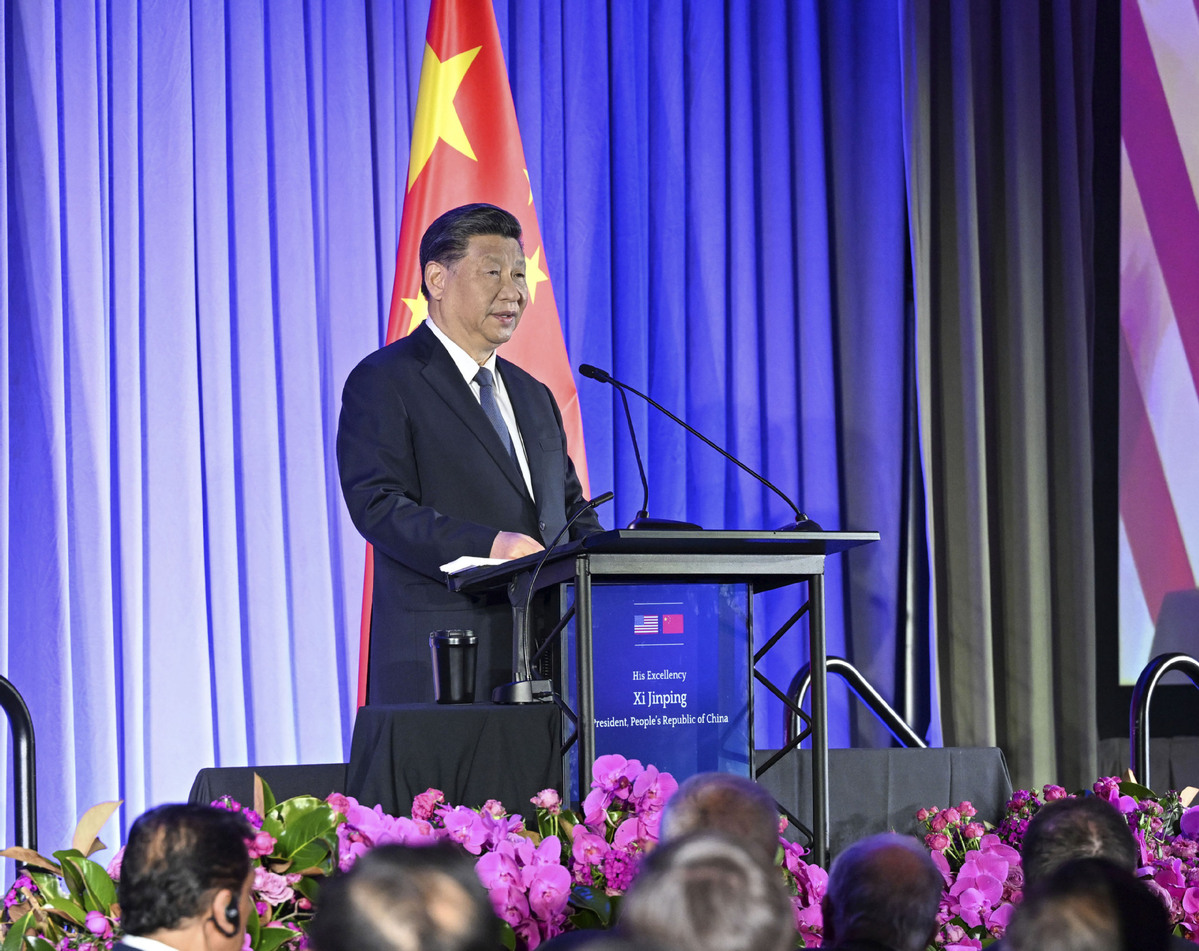
Full text of Xi Jinping's keynote speech at 3rd Belt and Road Forum for Int'l Cooperation
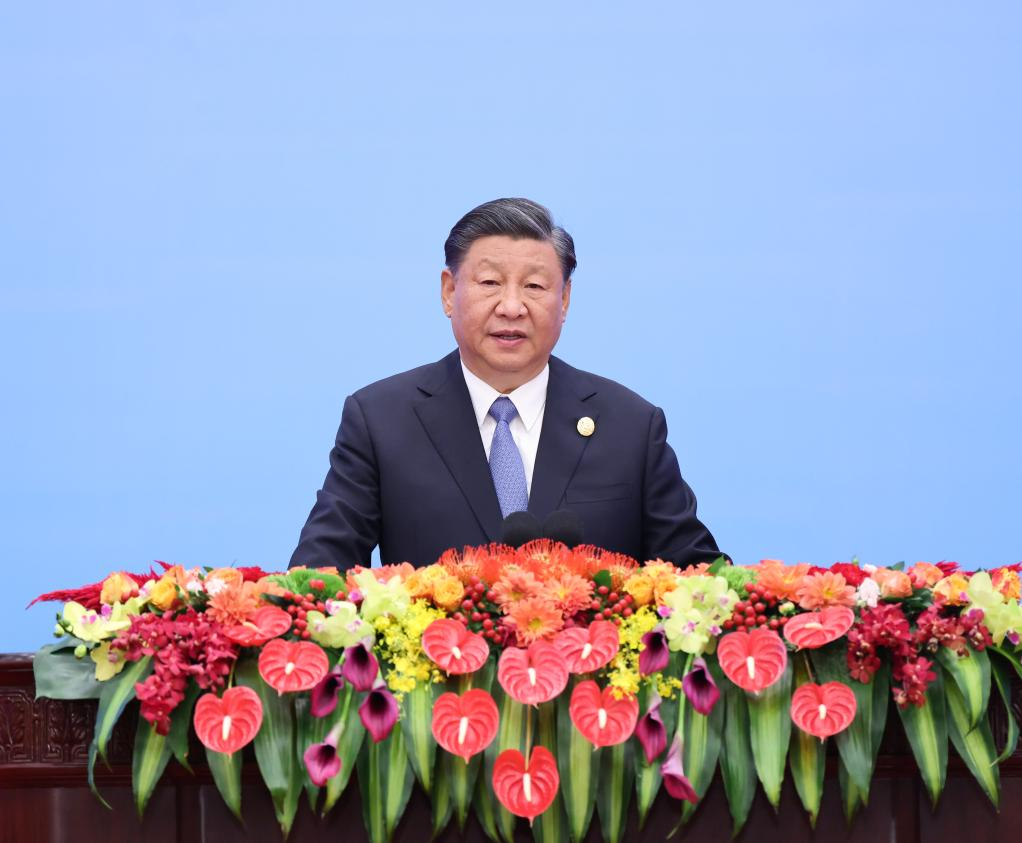
BEIJING -- Chinese President Xi Jinping on Wednesday delivered a keynote speech at the third Belt and Road Forum for International Cooperation.
The following is the full text of the speech:
Building an Open, Inclusive and Interconnected World For Common Development
Keynote Speech by H.E. Xi Jinping
President of the People's Republic of China
At the Opening Ceremony of the Third Belt and Road Forum for International Cooperation
October 18, 2023
Your Excellencies Heads of State and Government,
Heads of International Organizations,
Representatives of Various Countries,
Distinguished Guests,
Ladies and Gentlemen,
Friends,
Today, we are meeting here for the opening ceremony of the Third Belt and Road Forum for International Cooperation (BRF). On behalf of the Chinese government and Chinese people and in my own name, I wish to extend a very warm welcome to you all!
This year marks the 10th anniversary of the Belt and Road Initiative (BRI) I proposed. The BRI, drawing inspiration from the ancient Silk Road and focusing on enhancing connectivity, aims to enhance policy, infrastructure, trade, financial and people-to-people connectivity, inject new impetus into the global economy, create new opportunities for global development, and build a new platform for international economic cooperation.
Over these 10 years, we have stayed committed to this founding mission. Thanks to our joint efforts, Belt and Road international cooperation has gotten off the ground, grown rapidly and produced fruitful outcomes.
Belt and Road cooperation has extended from the Eurasian continent to Africa and Latin America. More than 150 countries and over 30 international organizations have signed Belt and Road cooperation documents. We have held two sessions of the BRF before, and have established over 20 specialized multilateral cooperation platforms under the BRI.
Belt and Road cooperation has progressed from "sketching the outline" to "filling in the details," and blueprints have been turned into real projects. A large number of signature projects and "small yet smart" people-centered programs have been launched.
Belt and Road cooperation has expanded from physical connectivity to institutional connectivity. Important guiding principles for high-quality Belt and Road cooperation have been laid down, which include the principle of "planning together, building together, and benefiting together," the philosophy of open, green and clean cooperation, and the goal of pursuing high-standard, people-centered and sustainable cooperation.
Over these 10 years, we have endeavored to build a global network of connectivity consisting of economic corridors, international transportation routes and information highway as well as railways, roads, airports, ports, pipelines and power grids. Covering the land, the ocean, the sky and the Internet, this network has boosted the flow of goods, capital, technologies and human resources among countries involved and injected fresh vitality into the millennia-old Silk Road in the new era.
Trains speeding along rail tracks, automobiles running on roads, flights connecting different countries, cargo ships breaking waves, and e-commerce bringing so much convenience to people -- they have all become symbols of international trade in the new era, just like camel caravans and the sailing ships were for the past age.
Hydro, wind and solar energy based power plants, oil and gas pipelines, and the increasingly smart and interconnected power transmission networks are removing the development bottleneck caused by energy shortage and fulfilling the dream of developing countries to achieve green and low-carbon development. These energy projects have become the oasis and lighthouse for sustainable development in the new era.
Brand new airports and harbors, smooth roads, and newly built industrial parks for business cooperation have created new economic corridors and new growth drivers, and have become the trading routes and staging posts of the new era.
Rich and colorful cultural years, art festivals, expos and exhibitions, Luban Workshops, people-to-people exchange programs like the Silk Road Community Building Initiative and the Brightness Action program, and deepening exchanges between non-governmental organizations, think tanks, media organizations, and the youth -- all these flourishing activities have composed a symphony of friendship in the new era.
When COVID-19 struck, the Belt and Road became a life-saving road. China provided more than 10 billion masks and 2.3 billion doses of vaccines to other countries and jointly produced vaccines with over 20 countries, making a special contribution to BRI partners' efforts in fighting COVID-19. And China also received valuable support from more than 70 countries when it was hit hard by the pandemic.
Belt and Road cooperation is based on the principle of "planning together, building together, and benefiting together." It transcends differences between civilizations, cultures, social systems, and stages of development. It has opened up a new path for exchanges among countries, and established a new framework for international cooperation. Indeed, the BRI represents humanity's joint pursuit of development for all.
Ladies and Gentlemen,
Friends,
Our achievements in the past decade are truly remarkable, and there is so much we can draw from them.
We have learned that humankind is a community with a shared future. China can only do well when the world is doing well. When China does well, the world will get even better. Through Belt and Road cooperation, China is opening its door even wider to the world, with its inland regions turning from "fullbacks" into "forwards," and coastal regions scaling new heights in their opening-up. China's market has become even more closely integrated with the global market. China has become a main trading partner of more than 140 countries and territories and a primary source of investment for more countries. Both Chinese investment overseas and foreign investment in China have boosted friendship, cooperation, confidence and hope.
We have learned that win-win cooperation is the sure way to success in launching major initiatives that benefit all. When countries embrace cooperation and act in concert, a deep chasm can be turned into a thoroughfare, land-locked countries can become land-linked, and a place of underdevelopment can be transformed into a land of prosperity. Countries taking the lead in economic development should give a hand to their partners who are yet to catch up. We should all treat each other as friends and partners, respect and support each other, and help each other succeed. As the saying goes, when you give roses to others, their fragrance lingers on your hand. In other words, helping others is also helping oneself. Viewing others' development as a threat or taking economic interdependence as a risk will not make one's own life better or speed up one's development.
We have learned that the Silk Road spirit of peace and cooperation, openness and inclusiveness, mutual learning and mutual benefit is the most important source of strength for Belt and Road cooperation. I once said that the pioneers of the ancient silk routes won their place in history not as conquerors with warships, guns, horses or swords. Rather, they are remembered as friendly emissaries leading camel caravans and sailing ships loaded with goods. Belt and Road cooperation is based on the belief that flame runs high when everyone adds wood to the fire and that mutual support can get us far. Such cooperation seeks to deliver a good life not only to people of just one country, but to people in other countries as well. It promotes connectivity, mutual benefit, common development, cooperation and win-win outcomes. Ideological confrontation, geopolitical rivalry and bloc politics are not a choice for us. What we stand against are unilateral sanctions, economic coercion and decoupling and supply chain disruption.
What has been achieved in the past 10 years demonstrates that Belt and Road cooperation is on the right side of history. It represents the advancing of our times, and it is the right path forward. We need to remain clear-eyed and undisturbed in a volatile world, and we need to be keenly aware of our responsibility for history, for the people and for the world. We should jointly address various global risks and challenges, and deliver a bright future of peace, development, cooperation and mutual benefit for future generations.
Ladies and Gentlemen,
Friends,
Changes of the world, of our times, and of historical significance are unfolding like never before. China is endeavoring to build itself into a stronger country and rejuvenate the Chinese nation on all fronts by pursuing Chinese modernization. The modernization we are pursuing is not for China alone, but for all developing countries through our joint efforts. Global modernization should be pursued to enhance peaceful development and mutually beneficial cooperation and bring prosperity to all. On our way forward, we will encounter both headwinds and tailwinds. We need to stay focused on our goal, take results-oriented actions, persevere, and keep moving forward until our goal is met. China will work with all parties involved to deepen Belt and Road partnerships of cooperation, usher this cooperation into a new stage of high-quality development, and make relentless efforts to achieve modernization for all countries.
Now, I wish to announce eight major steps China will take to support our joint pursuit of high-quality Belt and Road cooperation.
First, building a multidimensional Belt and Road connectivity network. China will speed up high-quality development of the China-Europe Railway Express, participate in the trans-Caspian international transportation corridor, host the China-Europe Railway Express Cooperation Forum, and make joint efforts to build a new logistics corridor across the Eurasian continent linked by direct railway and road transportation. We will vigorously integrate ports, shipping and trading services under the "Silk Road Maritime," and accelerate the building of the New International Land-Sea Trade Corridor and the Air Silk Road.
Second, supporting an open world economy. China will establish pilot zones for Silk Road e-commerce cooperation, enter into free trade agreements and investment protection treaties with more countries. We will remove all restrictions on foreign investment access in the manufacturing sector. In light of international high-standard economic and trade rules, we will further advance high-standard opening up in cross-border service trade and investment, expand market access for digital and other products, and deepen reform in areas including the state-owned enterprises, digital economy, intellectual property and government procurement. China will hold the Global Digital Trade Expo annually. In the next five years (2024-2028), China's total trade in goods and services is expected to exceed USD 32 trillion and USD 5 trillion respectively.
Third, carrying out practical cooperation. China will promote both signature projects and "small yet smart" livelihood programs. The China Development Bank and the Export-Import Bank of China will each set up a RMB 350 billion financing window. An additional RMB 80 billion will be injected into the Silk Road Fund. Together, they will support BRI projects on the basis of market and business operation. Cooperation agreements worth USD 97.2 billion have been concluded at the CEO Conference held during this Forum. China will carry out 1,000 small-scale livelihood assistance projects, and enhance vocational education cooperation through Luban Workshops and other initiatives. We will also step up joint efforts to ensure the safety of BRI projects and personnel.
Fourth, promoting green development. China will continue to deepen cooperation in areas such as green infrastructure, green energy and green transportation, and step up support for the BRI International Green Development Coalition. China will continue to hold the BRI Green Innovation Conference, and establish dialogue and exchange mechanisms for the solar industry and a network of experts on green and low-carbon development. China will implement the Green Investment Principles for the Belt and Road, and provide 100,000 training opportunities for partner countries by 2030.
Fifth, advancing scientific and technological innovation. China will continue to implement the Belt and Road Science, Technology and Innovation Cooperation Action Plan, hold the first Belt and Road Conference on Science and Technology Exchange, increase the number of joint laboratories built with other parties to 100 in the next five years, and support young scientists from other countries to work on short-term programs in China. At this Forum, China will put forward the Global Initiative for Artificial Intelligence (AI) Governance. We stand ready to increase exchanges and dialogue with other countries and jointly promote the sound, orderly and secure AI development in the world.
Sixth, supporting people-to-people exchanges. China will host the Liangzhu Forum to enhance dialogue on civilizations with BRI partner countries. In addition to the Silk Road International League of Theaters, the Silk Road International Arts Festival, the International Alliance of Museums of the Silk Road, the Silk Road International Alliance of Art Museums, and the Silk Road International Library Alliance that have been set up, China has also launched the International Tourism Alliance of Silk Road Cities. And we will continue with the Chinese government scholarship Silk Road Program.
Seventh, promoting integrity-based Belt and Road cooperation. Together with its cooperation partners, China will release the Achievements and Prospects of Belt and Road Integrity Building and the High-Level Principles on Belt and Road Integrity Building, and establish the Integrity and Compliance Evaluation System for Companies Involved in Belt and Road Cooperation. We will also work with international organizations to carry out research and training on promoting integrity in Belt and Road cooperation.
Eighth, strengthening institutional building for international Belt and Road cooperation. China will work with its BRI partner countries to strengthen the building of multilateral cooperation platforms covering energy, taxation, finance, green development, disaster reduction, anti-corruption, think tank, media, culture and other fields. China will continue to host the BRF and establish a secretariat for the Forum.
Ladies and Gentlemen,
Friends,
The past decade has been a journey of dedicated cooperation and fruitful outcomes. Belt and Road cooperation was proposed by China, but its benefits and opportunities are for the world to share. Let us meet the expectations of the people, assume responsibilities entrusted on us by history, closely follow the trend of the times, and press ahead with energy and enterprise. Let us deepen Belt and Road international cooperation, and bring Belt and Road cooperation to a new stage of higher-quality and higher-level development. Let us advance modernization of all countries, build an open, inclusive and interconnected world for common development, and jointly build a community with a shared future for mankind.
I wish the Third Belt and Road Forum for International Cooperation a full success!
Thank you.
Remarks by Chinese President Xi Jinping at welcoming banquet of Hangzhou Asiad opening ceremony

HANGZHOU - Chinese President Xi Jinping and his wife, Peng Liyuan, on Saturday hosted a banquet in Hangzhou, capital city of east China's Zhejiang Province, to welcome guests who will attend the opening ceremony of the 19th Asian Games.
The following is the full text of the remarks by President Xi at the banquet:
Remarks by H.E. Xi Jinping
President of the People's Republic of China
At the Welcoming Banquet of the Opening Ceremony
Of the 19th Asian Games Hangzhou
Hangzhou, September 23, 2023
Distinguished Colleagues,
Distinguished OCA Acting President Raja Randhir Singh,
Distinguished IOC President Thomas Bach,
Ladies and Gentlemen,
Friends,
I am delighted to join so many old and new friends by the beautiful West Lake celebrating the opening of the 19th Asian Games. At the outset, on behalf of the Chinese government and people, and in the name of my wife and myself, I would like to extend a warm welcome to all our distinguished guests!
Today is the Autumn Equinox, known as Qiufen on the Chinese lunar calendar. On this day of harvest and reunion, the cauldron of the Asian Games will light up again in China. Since being honored with the right to host the Games, China has earnestly fulfilled its commitments and made every effort for its preparation. We look forward to working closely together with the Olympic Council of Asia (OCA) and delegations from all countries and regions to deliver to the world a great event that is distinctly Chinese, uniquely Asian and spectacular and to make new contribution to the Olympic Movement in Asia and the world.
Ladies and Gentlemen,
Friends,
The Asian Games embodies the Asian people's shared desire for peace, unity and inclusiveness.
Over decades, Asia has enjoyed overall stability as well as sustained rapid economic growth, creating the Asian Miracle that is incomparable across the world. The Asian Games has not only been a witness to this achievement, but also a participant and a contributor. As a community with a shared future connected by mountains and rivers as well as cultural affinity, we should use sports to promote peace, pursue good neighborliness and mutual benefit, and reject Cold War mentality and bloc confrontation. We should make Asia an anchor of world peace.
The 19th Asian Games has set a new record in the numbers of registered athletes and events, reflecting the great expectations and firm support of the Asian people for the Hangzhou Games. As humanity faces unprecedented global challenges, we should use sports to promote unity, seize the historic opportunity, and jointly stand up to the challenges. We should honor the OCA motto of "Ever Onward," and open up broader prospects for the Asian road toward common development, openness and integration.
As an important birthplace of human civilization, Asia has fostered splendid cultures. The 19th Asian Games has included many disciplines with distinctive Asian features. It provides a platform to celebrate sports and culture, and showcases Asian culture that is inclusive, vibrant and always keen to learn from others. We should use sports to promote inclusiveness, enhance confidence in our civilizations, pursue exchanges and mutual learning, and renew the glory of Asian civilizations.
Ladies and Gentlemen,
Friends,
For centuries, Hangzhou has been known for its breathtaking natural beauty, rich endowment and a thriving cultural life. Marco Polo described it as "the City of Heaven, the finest and the noblest in the world." I once worked in Zhejiang Province for quite a few years. Committed to reform and opening up, the Province is now fast-tracking toward high-quality development. It is building a demonstration zone for common prosperity, and has become a pioneer in Chinese modernization. I wish you all an unforgettable experience in the picturesque Zhejiang and a fond memory by the flames of the Asian Games.
Now, I would like to propose a toast,
To the success of the 19th Asian Games,
To the advancement of the Olympic Movement,
To the unity and friendship of the Asian people, and
To the health of all distinguished guests and your families.
Cheers!
Full Text: Remarks by Chinese President Xi Jinping at China-Africa Leaders' Dialogue
JOHANNESBURG - Chinese President Xi Jinping addressed the China-Africa Leaders' Dialogue on Thursday. Following is the full text of Xi's remarks:
Joining Hands to Advance Modernization and Create a Great Future for China and Africa
Keynote Speech by H.E. Xi Jinping
President of the People's Republic of China
At China-Africa Leaders' Dialogue
Johannesburg, August 24, 2023
Your Excellency President Matamela Cyril Ramaphosa,
Your Excellencies Heads of State,
Colleagues,
It is a great pleasure to co-chair with President Ramaphosa the China-Africa Leaders' Dialogue. I feel a particular warmth seeing my African friends face to face after five years, to celebrate our friendship and chart the way forward for our cooperation. I wish to thank all the colleagues for attending the dialogue, and send sincere greetings to leaders of other African countries who are not with us today.
Africa is a fertile land of hope in the 21st century. This is my 10th visit to the continent. Each time, I feel the new development and changes in Africa. As the Organization of African Unity marks its 60th anniversary this year, I wish to convey heartfelt congratulations to you all and to the African people.
Over the past 60 years, under the banner of Pan-Africanism, African countries have made big strides on the path of independence, seeking strength through unity and integration. You have demonstrated the strength of Africa in the struggles to uphold multilateralism and the common interests of developing countries. With steady progress under Agenda 2063 of the African Union (AU), the official launch of the African Continental Free Trade Area (AfCFTA), and growing coordination among the subregional groups, Africa is becoming an important pole with global influence.
In 2013 after I became Chinese President, I was here in Africa for my first foreign visit and announced the principle of sincerity, real results, amity and good faith for China's Africa policy. Over the past 10 years, China has stayed committed to this principle. Together with our African friends and drawing strength from the spirit of China-Africa friendship and cooperation, we have pressed ahead on the path of solidarity and cooperation, stood for justice amid shifting global dynamics, and looked out for each other in face of the COVID-19 pandemic. We have taken China-Africa relations to new heights and entered the new stage of jointly building a high-level China-Africa community with a shared future.
Colleagues,
China is marching toward the Second Centenary Goal of building itself into a great modern socialist country in all respects that is prosperous, strong, democratic, culturally advanced, harmonious and beautiful when the People's Republic marks its centenary. We are pursuing the great rejuvenation of the Chinese nation on all fronts through a Chinese path to modernization. Africa is moving at an accelerated speed toward the bright prospects envisioned in Agenda 2063, and making all-out efforts to build a new Africa that enjoys peace, unity, prosperity and strength. China and Africa must work together to create a sound environment for realizing our respective development visions.
-Working together to promote a just and equitable international order. We should carry forward the spirit of sticking together in times of adversity, practice true multilateralism, and unequivocally oppose vestiges of colonialism and hegemonism in all forms. We should firmly support each other in defending core interests, stand strong by the just calls of developing countries, and work for a more just and equitable international order.
-Working together to safeguard a peaceful and secure global environment. Africa is working unremittingly for the goal of silencing the guns. China is ready to work with Africa to implement the new vision of common, comprehensive, cooperative and sustainable security, advocate the resolution of differences and disputes through dialogue and cooperation, facilitate the political settlement of international and regional hotspot issues, and safeguard world peace and stability. We should uphold harmonious coexistence between man and nature, and protect the security of the global eco-environment.
-Working together to build an open and inclusive world economy. What we need is to remove barriers rather than erect walls, open up rather than close off. We should carry out extensive consultation and make joint contribution for shared benefit, reject the winner-takes-all approach, and build an open world economy where developing countries are better involved in the international division of labor and share the fruits of economic globalization. We should overcome estrangement between civilizations through exchanges, promote inclusiveness and mutual learning between civilizations, and make new contributions to human progress.
Colleagues,
There are various paths leading to modernization. The African people have the most say on which path suits Africa best. Advancing modernization through integration is the independent choice made by African countries and people. On this path to modernization, China has all along been a firm supporter, and walking side by side with Africa. Over the years, China has helped Africa build a large amount of connectivity infrastructure, carried out extensive cooperation with the AU and subregional organizations, and assisted the construction of several signature Pan-African projects, including the AU Conference Center and the Africa Center for Disease Control and Prevention.
Looking ahead, China will work with Africa to enhance the synergy of our development strategies. Through Belt and Road cooperation and the Forum on China-Africa Cooperation (FOCAC), and in light of Agenda 2063, China will intensify dialogue and communication with Africa at various levels, and support the African agencies for integration, including the AfCFTA Secretariat, the Pan-African Payment and Settlement System and the African Union of Broadcasting, among others, in creating cooperation mechanisms with China.
China will continue to support Africa in speaking with one voice on international affairs and continuously elevating its international standing. China will work actively at the G20 Summit next month to support the AU's full membership in the group. China supports making special arrangements on the U.N. Security Council reform to meet Africa's aspiration as a priority. China will call on multilateral financial institutions to enhance the say of African countries.
To chart the course for our practical cooperation in the next stage and help Africa bring its integration and modernization into a fast track, I wish to make the following three proposals:
-China will launch the Initiative on Supporting Africa's Industrialization. China will better harness its resources for cooperation with Africa and the initiative of businesses to support Africa in growing its manufacturing sector and realizing industrialization and economic diversification. In implementing the nine programs under the FOCAC framework, China will channel more resources of assistance, investment and financing toward programs for industrialization.
-China will launch the Plan for China Supporting Africa's Agricultural Modernization. China will help Africa expand grain plantation, encourage Chinese companies to increase agricultural investment in Africa, and enhance cooperation with Africa on seed and other areas of agro-technology, to support Africa in transforming and upgrading its agricultural sector. China will host the second Forum on China-Africa Cooperation in Agriculture in Hainan this November.
To help Africa tackle the current food crisis, China will provide additional emergency food assistance to African countries in need. More importantly, China has confidence that Africa will attain food self-sufficiency through its own efforts.
-China will launch the Plan for China-Africa Cooperation on Talent Development. China plans to train 500 principals and high-caliber teachers of vocational colleges every year, and 10,000 technical personnel with both Chinese language and vocational skills for Africa. China will invite 20,000 government officials and technicians of African countries to participate in workshops and seminars. To support Africa in strengthening education and innovation, we will launch the China-Africa Universities 100 Cooperation Plan and 10 pilot exchange programs of China-Africa partner institutes.
Colleagues,
The world today is undergoing transformation and turmoil, and changes unseen in a century are unfolding at a faster pace. At this point of history, we all face the tasks of how to address the deficit in development, overcome security challenges and enhance mutual learning between civilizations. In view of this, I have put forward the Global Development Initiative, the Global Security Initiative and the Global Civilization Initiative, called for peace, development, cooperation and mutual benefit, and advocated building a community with a shared future for mankind. These proposals have received the extensive support of African countries. China and Africa, through our creative explorations for modernization, are giving our answers to the questions of our times, and making joint efforts to advance the great endeavors of win-win cooperation, harmonious coexistence and shared prosperity of civilizations.
Next year, China will host the FOCAC meeting, where we may come together again and draw up new plans for our development. It is a big gathering that both sides are looking forward to. I am confident that China and Africa will carry forward the traditional friendship, enhance solidarity and coordination, and bolster our cooperation across the board. As we join hands to advance modernization, we will deliver a better future for the Chinese and African people, and set a fine example in the building of a community with a shared future for mankind.
Thank you.
Editor's note: The following is the full text of a speech by Chinese President Xi Jinping read out by Chinese Minister of Commerce Wang Wentao at the BRICS Business Forum 2023 on Tuesday.
Your Excellency President Matamela Cyril Ramaphosa,
Members of the Business Community,
Ladies and Gentlemen,
Friends,
I wish to extend my warm congratulations on the success of the BRICS Business Forum in South Africa!
Ten years ago here in South Africa, we BRICS leaders witnessed the birth of the BRICS Business Council. Since then, the Council has stayed true to its founding mission. It has seized opportunities to deepen cooperation, contributing to economic and social development of BRICS countries and helping sustain global economic growth.
Right now, changes in the world, in our times and in history are unfolding in ways like never before, bringing human society to a critical juncture. Should we pursue cooperation and integration, or just succumb to division and confrontation? Should we work together to maintain peace and stability, or just sleepwalk into the abyss of a new Cold War? Should we embrace prosperity, openness and inclusiveness, or allow hegemonic and bullying acts to throw us into depression? Should we deepen mutual trust through exchanges and mutual learning, or allow hubris and prejudice to blind conscience? The course of history will be shaped by the choices we make.
An ancient Chinese thinker observed that "following the underlying trend will lead one to success, while going against it can only cause one to fail." We humankind have achieved notable economic development and social progress over the past decades, and that is because we have drawn lessons from the two world wars and the Cold War, followed the historical trend of economic globalization, and embarked on the right path of openness and development for win-win cooperation. Our world today has become a community with a shared future in which we all share a huge stake of survival. What people in various countries long for is definitely not a new Cold War or a small exclusive bloc; what they want is an open, inclusive, clean and beautiful world that enjoys enduring peace, universal security and common prosperity. Such is the logic of historical advance and the trend of our times.
Ten years ago, I made a proposition of building a community with a shared future for mankind, calling on all countries to build this planet we all call home into a harmonious family. In the face of high winds, choppy waters and even treacherous storms, we in all countries need to uphold the correct views of the world, of history and of our overall interests, and act to translate the vision of a community with a shared future for mankind into reality.
— We need to promote development and prosperity for all. Many emerging markets and developing countries (EMDCs) have come to what they are today after shaking off the yoke of colonialism. With perseverance, hard work and huge sacrifices, we succeeded in gaining independence and have been exploring development paths suited to our national conditions. Everything we do is to deliver better lives to our people. But some country, obsessed with maintaining its hegemony, has gone out of its way to cripple the EMDCs. Whoever is developing fast becomes its target of containment; whoever is catching up becomes its target of obstruction. But this is futile, as I have said more than once that blowing out others' lamp will not bring light to oneself.
Every country has the right to development, and the people in every country have the freedom to pursue a happy life. With that in mind, I have proposed the Global Development Initiative, with the goal of promoting development for all by the international community and boosting the U.N. 2030 Agenda for Sustainable Development. With the support of many countries, solid gains have been made in pursuing this initiative, with cooperation flourishing in various fields. China will work with all other countries to speed up cooperation under the Global Development Initiative, strengthen drivers of global development, promote the reform of the World Trade Organization in a comprehensive and in-depth manner, meet common challenges together and make life better for people across the world.
— We need to achieve universal security. Recent years have seen a turbulent world; many countries and regions are plagued by wars and conflicts and many people are displaced. Members of the international community share the pressing hope to eradicate the root cause of conflicts and wars, and find a fundamental way to realize enduring peace and security globally. Facts have shown that any attempt to keep enlarging a military alliance, expand one's own sphere of influence or squeeze other countries' buffer of security can only create security predicament and insecurity for all countries. Only a commitment to a new vision of common, comprehensive, cooperative and sustainable security can lead to universal security.
Last year, I put forward the Global Security Initiative, and it has gained support from over 100 countries and international organizations. China stands ready to jointly pursue this initiative with all others. We should have dialogue and oppose confrontation, forge partnership but not alliance, and pursue win-win outcome and oppose zero-sum game, and work together to build a community of security.
— We need to stay committed to exchanges among civilizations and mutual learning. One flower alone cannot make a beautiful spring; only blossoming of a rich variety of flowers can bring spring to the global garden. Human civilization is colorful by nature. It is precisely because of their differences in history, culture and system that all countries need to interact with one another, learn from each other, and advance together. Deliberately creating division with the assertion of "democracy versus authoritarianism" and "liberalism versus autocracy" can only split the world and lead to clash of civilizations.
I have put forward the Global Civilization Initiative, calling for promoting diversity of global civilizations, the common values of humanity, and people-to-people and cultural exchanges and cooperation. China welcomes all other countries to get involved in cooperation under this initiative. We should encourage different civilizations to bring out their best and flourish together; we should break barriers to exchanges, and renew human civilization.
Ladies and Gentlemen,
Friends,
As an ancient Chinese philosopher observes, "Change is the nature of the universe." The collective rise of EMDCs represented by BRICS is fundamentally changing the global landscape. EMDCs have contributed as high as 80 percent of global growth in the past 20 years, and their share in the global GDP has increased from 24 percent 40 years ago to more than 40 percent. Just as a line in a Chinese poem reads, "No mountains can stop the surging flow of a mighty river." Whatever resistance there may be, BRICS, a positive and stable force for good, will continue to grow. We will forge stronger BRICS strategic partnership, expand the "BRICS Plus" model, actively advance membership expansion, deepen solidarity and cooperation with other EMDCs, promote global multipolarity and greater democracy in international relations, and help make the international order more just and equitable. The gathering between BRICS countries and more than 50 other countries in South Africa today is not an exercise of asking countries to take sides, nor an exercise of creating bloc confrontation. Rather, it is an endeavor to expand the architecture of peace and development. I am glad to note that over 20 countries are knocking on the door of BRICS. China hopes to see more joining the BRICS cooperation mechanism.
Ladies and Gentlemen,
Friends,
China stays committed to an independent foreign policy of peace and the building of a community with a shared future for mankind. As a developing country and a member of the Global South, China breathes the same breath with other developing countries and pursues a shared future with them. China has resolutely upheld the common interests of developing countries and worked to increase the representation and voice of EMDCs in global affairs. Hegemonism is not in China's DNA; nor does China have any motivation to engage in major-power competition. China stands firmly on the right side of history, and believes that a just cause should be pursued for the common good.
At present, we Chinese, under the leadership of the Communist Party of China, are advancing the great rejuvenation of the Chinese nation on all fronts by pursuing Chinese modernization. Chinese modernization aims to achieve common prosperity, material and cultural-ethical advancement, harmony between humanity and nature, and peaceful development for a huge population. Chinese modernization has created a new form of human advancement and presented a new future of modernization. We hope that other developing countries can draw on the outstanding achievements of human civilization and find their own paths to modernization in keeping with their national conditions.
Achieving high-quality development is a top priority in China's goal of fully building itself into a modernized country. We are committed to applying a new development philosophy and creating a new development paradigm. In the past decade, China has contributed more than 30 percent of annual global growth. This year, the Chinese economy has maintained the momentum of recovery and growth. China enjoys several distinct advantages: a socialist market economy in systemic terms, a supersize market in terms of demand, a full-fledged industrial system in terms of supply, and abundant, high-caliber labor force and entrepreneurs in terms of human resources. The Chinese economy has strong resilience, tremendous potential and great vitality. The fundamentals sustaining China's long-term growth will remain unchanged. The giant ship of the Chinese economy will continue to cleave waves and sail ahead.
China will remain an important opportunity for the world's development. Our door is wide open to anyone who wants to engage in cooperation with us. As a supersize economy, China will remain firm in advancing high-standard opening-up. We will continue to expand market access, cut the negative list for foreign investment, and further open the modern services sector. We will steadily improve the business environment, provide national treatment to foreign-invested enterprises, foster a world-class, market-oriented business environment governed by a sound legal framework, and build a globally-oriented network of high-standard free trade areas. We will continue to advance ecological conservation, accelerate the building of a Beautiful China, actively and prudently move toward carbon peak and carbon neutrality, and pursue all-round green transition in economic and social development. Going forward, as it endeavors to achieve modernization for its more than 1.4 billion people, China will surely contribute even more to the global economy and provide even more opportunities for the global business community.
Ladies and Gentlemen,
Friends,
A formidable mission is a magnificent and glorious mission. As long as we work in unity and strengthen cooperation, we will not be intimidated by any risk or challenge on the way ahead, and we will surely steer the giant ship of human development to a brighter future!
Thank you.
SOURCE: MINISTRY OF FOREIGN AFFAIRS
Full Text: Remarks by Chinese President Xi Jinping at the 15th BRICS Summit
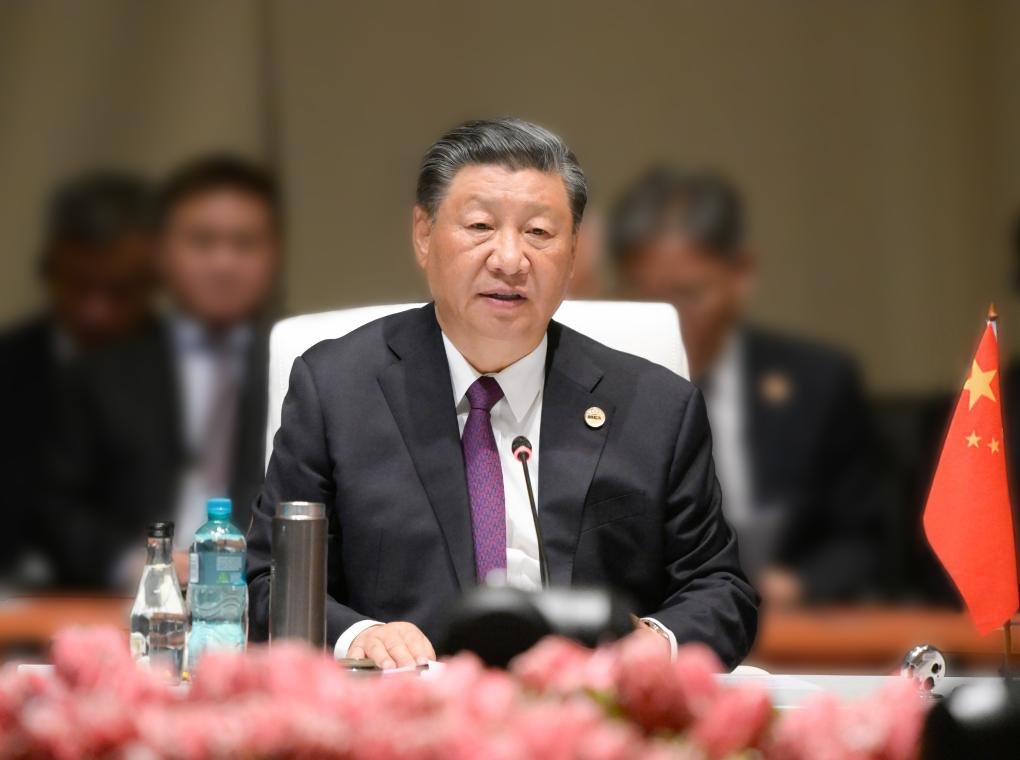
JOHANNESBURG - Chinese President Xi Jinping addressed the 15th BRICS Summit on Wednesday.
Following is the full text of Xi's remarks:
Seeking Development Through Solidarity and Cooperation and Shouldering Our Responsibility for Peace
Remarks by H.E. Xi Jinping
President of the People's Republic of China
At the 15th BRICS Summit
Johannesburg, August 23, 2023
Your Excellency President Matamela Cyril Ramaphosa,
Your Excellency President Luiz Inacio Lula da Silva,
Your Excellency President Vladimir Putin,
Your Excellency Prime Minister Narendra Modi,
I am very pleased to join you in Johannesburg for the important discussions on BRICS cooperation and development. It is especially significant that the BRICS Summit is held in Africa for the third time. I wish to thank President Ramaphosa and the South African government for the thoughtful arrangements.
We gather at a time when the world has entered a new period of turbulence and transformation. It is undergoing major shifts, division and regrouping, leading to more uncertain, unstable and unpredictable developments.
BRICS is an important force in shaping the international landscape. We choose our development paths independently, jointly defend our right to development, and march in tandem toward modernization. This represents the direction of the advancement of human society, and will profoundly impact the development process of the world. Our track record shows that we have consistently acted on the BRICS spirit of openness, inclusiveness and win-win cooperation, and taken BRICS cooperation to new heights in support of our five countries' development. We have upheld fairness and justice in international affairs, stood up for what is right on major international and regional issues, and enhanced the voice and influence of emerging markets and developing countries. BRICS countries invariably advocate and practice independent foreign policies. We always address major international issues based on their merits, making fair remarks and taking fair actions. We do not barter away principles, succumb to external pressure, or act as vassals of others. We BRICS countries share extensive consensus and common goals. No matter how the international situation changes, our commitment to cooperation since the very beginning and our common aspiration will not change.
We gather at a crucial time to build on our past achievements and open up a new future for BRICS cooperation. We should navigate the trend of our times and stay in the forefront. We should always bear in mind our founding purpose of strengthening ourselves through unity, enhance cooperation across the board, and build a high-quality partnership. We should help reform global governance to make it more just and equitable, and bring to the world more certainty, stability and positive energy.
-- We should deepen business and financial cooperation to boost economic growth. Development is an inalienable right of all countries, not a privilege reserved for a few. The world economic recovery remains shaky, with less than 3 percent of growth for the year as estimated by some international institutions. Challenges for developing countries are even more formidable, hampering their efforts to realize the Sustainable Development Goals. We BRICS countries should be fellow companions on the journey of development and revitalization, and oppose decoupling and supply chains disruption as well as economic coercion. We should focus on practical cooperation, particularly in such fields as digital economy, green development, and supply chain, and bolster economic, trade and financial exchanges.
China will set up a China-BRICS Science and Innovation Incubation Park for the New Era to support the deployment of innovation results. Under the BRICS Remote Sensing Satellite Constellation mechanism, we will explore the establishment of a BRICS Global Remote Sensing Satellite Data and Application Cooperation Platform to provide data support for agriculture, ecological conservation and disaster reduction in various countries. China will also work with all parties to jointly establish a BRICS Framework on Industrial Cooperation for Sustainable Development as a platform of industrial coordination and project cooperation in implementing the United Nations (U.N.) 2030 Agenda for Sustainable Development.
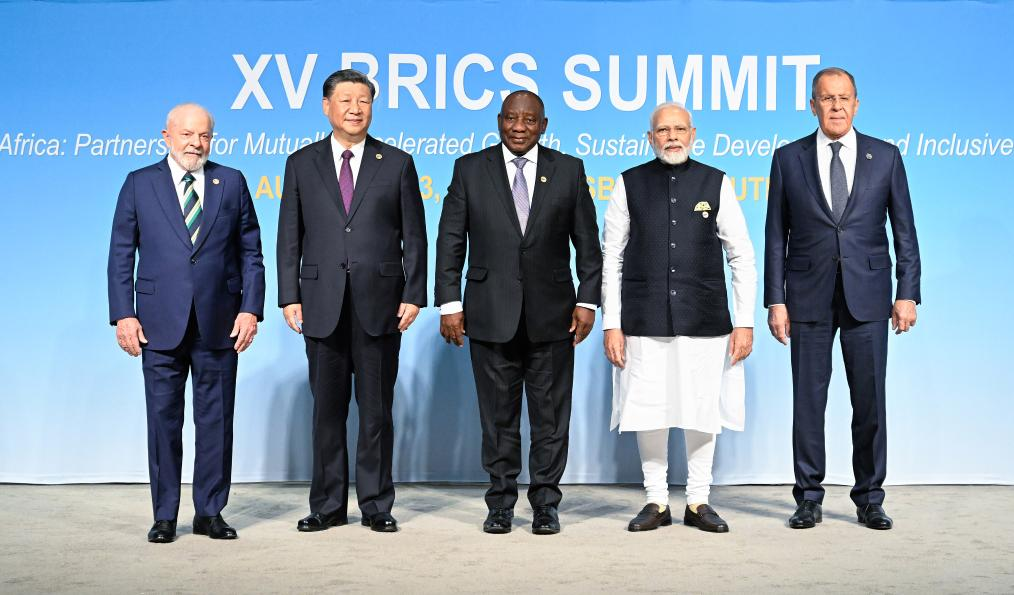
-- We should expand political and security cooperation to uphold peace and tranquility. As a Chinese saying suggests, "Nothing is more beneficial than stability, and nothing is more detrimental than turmoil." The Cold War mentality is still haunting our world, and the geopolitical situation is getting tense. All nations long for a sound security environment. International security is indivisible. Attempts to seek absolute security at the expense of others will eventually backfire. The Ukraine crisis has evolved to where it is today because of complex reasons. What is pressing now is to encourage peace talks, promote deescalation, end the fighting, and realize peace. No one should add fuel to the fire to worsen the situation.
BRICS countries should keep to the direction of peaceful development, and consolidate the BRICS strategic partnership. We need to make good use of the BRICS Foreign Ministers' Meeting, the Meeting of High Representatives on National Security and other mechanisms, support each other on issues concerning our respective core interests, and enhance coordination on major international and regional issues. We need to tender good offices on hotspot issues, pushing for political settlement and lowering the temperature. Artificial intelligence (AI) is a new area of development. BRICS countries have agreed to launch the AI Study Group of BRICS Institute of Future Networks at an early date. We need to enable the Study Group to play its full role, further expand cooperation on AI, and step up information exchange and technological cooperation. We need to jointly fend off risks, and develop AI governance frameworks and standards with broad-based consensus, so as to make AI technologies more secure, reliable, controllable and equitable.
-- We should increase people-to-people exchanges and promote mutual learning between civilizations. There are many civilizations and development paths in the world, and this is how the world should be. Human history will not end with a particular civilization or system. BRICS countries need to champion the spirit of inclusiveness, advocate peaceful coexistence and harmony between civilizations, and promote respect of all countries in independently choosing their modernization paths. We need to make good use of such mechanisms as the BRICS seminar on governance, the BRICS forum on people-to-people and cultural exchanges, and the Women Innovation Contest to deepen people-to-people exchanges and strengthen the bond between our peoples.
China would like to propose that BRICS countries expand cooperation on education, enhance the role of the BRICS alliance for vocational education, explore and set up a cooperation mechanism on digital education, and foster a paradigm of all-round cooperation on education. In addition, we also need to strengthen exchanges on traditional cultures and promote the renewal of fine traditional cultures.
-- We should uphold fairness and justice and improve global governance. Strengthening global governance is the right choice if the international community intends to share development opportunities and tackle global challenges. International rules must be written and upheld jointly by all countries based on the purposes and principles of the U.N. Charter, rather than dictated by those with the strongest muscles or the loudest voice. Ganging up to form exclusive groups and packaging their own rules as international norms are even more unacceptable. BRICS countries should practice true multilateralism, uphold the U.N.-centered international system, support and strengthen the WTO-centered multilateral trading system, and reject the attempt to create small circles or exclusive blocs. We need to fully leverage the role of the New Development Bank, push forward reform of the international financial and monetary systems, and increase the representation and voice of developing countries.
I am glad to see the growing enthusiasm of developing countries about BRICS cooperation, and quite a number of them have applied to join the BRICS cooperation mechanism. We need to act on the BRICS spirit of openness, inclusiveness and win-win cooperation to bring more countries into the BRICS family, so as to pool our wisdom and strength to make global governance more just and equitable.
Colleagues,
The ancient African continent is a reservoir of simple yet profound wisdom. As an African proverb puts it, "If you want to go fast, go alone; if you want to go far, go together." The philosophy of Ubuntu, which believes that "I am because we are," highlights the interdependence and interconnectedness of all peoples. Similarly, harmonious coexistence has been the aspiration of the Chinese nation for thousands of years. China is ready to work with BRICS partners to pursue the vision of a community with a shared future for mankind, enhance the strategic partnership, and deepen cooperation across the board. As fellow BRICS members, we should meet our common challenges with a shared sense of mission, shape a brighter future with a common purpose, and march together on the journey toward modernization.
Thank you.
Xi's signed article published on S. African media
BEIJING -- A signed article by Chinese President Xi Jinping titled "Sailing the Giant Ship of China-South Africa Friendship and Cooperation Toward Greater Success" was published Monday on South African media as he is going to attend the 15th BRICS Summit in Johannesburg and pay a state visit to South Africa.
An English version of the article, carried by The Star, Cape Times, The Mercury as well as Independent Online, is as follows:
Sailing the Giant Ship of China-South Africa
Friendship and Cooperation Toward Greater Success
Xi Jinping
President of the People's Republic of China
At the invitation of President Matamela Cyril Ramaphosa, I will soon make a state visit to the Republic of South Africa and attend the 15th BRICS Summit. It will be my sixth visit to the promising land of the "rainbow nation". South Africa is home to the great statesman Nelson Mandela, and it boasts the richest tourist resources, the longest road network, the biggest securities exchange, and the busiest airports and harbors in Africa. The country exudes unique charm with the perfect amalgam of the ancient and the modern, and of nature and culture.
Each of my visits to South Africa gave me new impressions. But the deepest is invariably the brotherly sentiments we have toward each other. Our friendship has traversed a long span of time. As early as in the mid-20th century, the newly founded People's Republic of China lent firm support to the South African people in fighting apartheid, and stood with the African National Congress as comrades and friends. Our friendship has defied the obstacles of mountains and oceans. Facing the sudden onslaught of COVID-19, China was among the first to provide anti-pandemic supplies to South Africa, reaffirming our special brotherhood. More recently, China also provided to the country emergency power equipment. Over the past 25 years since the establishment of diplomatic ties, our relationship has achieved leapfrog development--from a partnership to a strategic partnership, and then to a comprehensive strategic partnership. It is one of the most vibrant bilateral relations in the developing world. Our relationship has entered a "golden era", enjoying broad prospects and a promising future.
In recent years, President Ramaphosa and I have maintained close communication through visits, meetings, phone calls and letters. We jointly explore cooperation opportunities, pursue development, and stand up to common challenges. Our strategic mutual trust has been deepening steadily. We give each other firm support on issues involving our respective core interests and major concerns, and maintain coordination on major international and regional issues. We work together to practice true multilateralism and push for the building of a more just and equitable international order.
South Africa was the first African country to sign the Belt and Road cooperation document with China. It has been China's biggest trading partner in Africa for 13 years in a row, as well as one of the African countries with the largest stock of Chinese investment. The pie of bilateral cooperation is getting bigger. South Africa's wines, rooibos tea, and aloe vera gels are trending products in China. Many Chinese companies are expanding their operation and at the same time taking more social responsibilities in South Africa. Automobiles and home appliances with Chinese brands yet made in South Africa are very popular among local consumers, and are now owned by numerous South African households. South African companies are also racing to invest in the Chinese market to seize the abundant business opportunities, and they have made important contribution to China's economic growth.
South Africa's Ubuntu philosophy advocates compassion and sharing. It resonates well with the values of Confucianism--"love the people and all beings and seek harmony among all nations". In 2015, I participated in the Year of China activities in South Africa, and witnessed the gratifying achievements of our Year of China/South Africa programs. Last April, the faculty and students of the Confucius Institute at Durban University of Technology wrote me a letter in Chinese, expressing their fondness for the Chinese culture and thanking China for the valuable opportunities provided to young Africans chasing their dreams. I find it very heart-warming. Indeed, these vibrant people-to-people exchanges enhance the empathy between our peoples, and enable our friendship to be passed down from generation to generation.
The China-South Africa relationship is standing at a new historical starting point. It has gone beyond the bilateral scope and carries increasingly important global influence. During my forthcoming visit, I look forward to working with President Ramaphosa to chart the plan for a new chapter of our comprehensive strategic partnership.
China and South Africa should be fellow companions sharing the same ideals. As an ancient Chinese saying goes, "A partnership forged with the right approach defies distance; it is thicker than glue and stronger than metal and rock." We need to increase our experience sharing on governance, and firmly support each other in independently exploring a path to modernization that suits our respective national conditions. We should fear no hegemony, and work with each other as real partners to push forward our relations amid the changing international landscape.
China and South Africa should be pacesetters for solidarity and cooperation. We will succeed because of our biggest strengths in high economic complementarity and the solid foundation for cooperation. We need to further synergize development strategies, promote stronger cooperation in infrastructure, digital economy, scientific and technological innovation and energy transition, and ensure that more people of our two countries will benefit from the development outcomes. China welcomes more South African products to its market, and encourages more Chinese companies to invest and do business in South Africa as an effort of support for South Africa's target to double its inbound investment over the next five-year period.
China and South Africa should be inheritors of China-Africa friendship. We need to leverage the all-round, multi-tiered and institutionalized mechanisms for people-to-people exchanges between our two countries, and continue to advance exchanges and cooperation in culture, tourism, education, sports, media, universities, sub-national governments and the youth. We must keep the spirit of China-Africa friendship and cooperation as alive and strong as ever across the vast lands of China and Africa.
China and South Africa should be champions of our common interests. What the world needs today is peace, not conflict; what the world wants is coordination, not confrontation. China and South Africa, as natural members of the Global South, should all the more work together to appeal for greater voice and influence of developing countries in international affairs, promote accelerated reform of international financial institutions, and oppose unilateral sanctions and the "small yard, high fence" approach. We should jointly safeguard our common interests.
The BRICS Summit is another important agenda during my visit to South Africa. This is the third time for the Summit to take place on this continent brimming with vibrancy and hope. I still have vivid memories of the Summit in the picturesque Sanya, China's Hainan Province, when South Africa made the formal debut as a member of the BRICS family. Over the past 12 years, South Africa has made important contributions to the development of BRICS cooperation mechanism, further substantiating BRICS cooperation and extending its influence. Now more and more countries are knocking on the door of BRICS, aspiring to join our cooperation. This is a testament to the vitality and influence of the BRICS cooperation mechanism. China is ready to work with fellow BRICS partners to act on the BRICS spirit of openness, inclusiveness and win-win cooperation, build consensus on important issues, carry forward our tradition of independent diplomacy, and resolutely uphold international equity and justice. We will urge the international community to refocus on development issues, promote a greater role by the BRICS cooperation mechanism in global governance, and make the voice of BRICS stronger.
It has been ten years since I put forth "sincerity, real results, amity and good faith" as the principles for China to develop its relations with Africa. The past decade has witnessed our joint pursuit of a China-Africa community with a shared future in the new era, and the completion and handover of a host of projects including the Africa CDC Headquarters, the Foundiougne Bridge in Senegal, the Nairobi Expressway and the Mombasa-Nairobi Railway, renewing China-Africa friendship across the vast lands of China and Africa.
In face of the profound changes unseen in a century, a strong China-Africa relationship and productive China-Africa cooperation will provide more fresh impetus to global development and ensure greater stability of the world. This is an international responsibility and historical mission entrusted to the 2.8 billion Chinese and African peoples. We will convene a China-Africa Leaders' Dialogue. I will work with African leaders to bring more active, effective and sustainable development initiatives to Africa, expand cooperation in agriculture, manufacturing, new energy and digital economy, and facilitate Africa's economic integration, industrialization and agricultural modernization. China will continue to work for substantive progress in African Union's joining of the G20 this year, and looks forward to a greater role by African countries and the AU in international and regional affairs.
As an ancient Chinese poem goes, "With high tide and tailwind, it is time to sail a smooth ride." Looking ahead into the next 25 years, the giant ship of China-South Africa friendship and cooperation will sail forward, and we will make even greater progress in the building of a China-Africa community with a shared future in the new era as well as the building of a community with a shared future for mankind.



